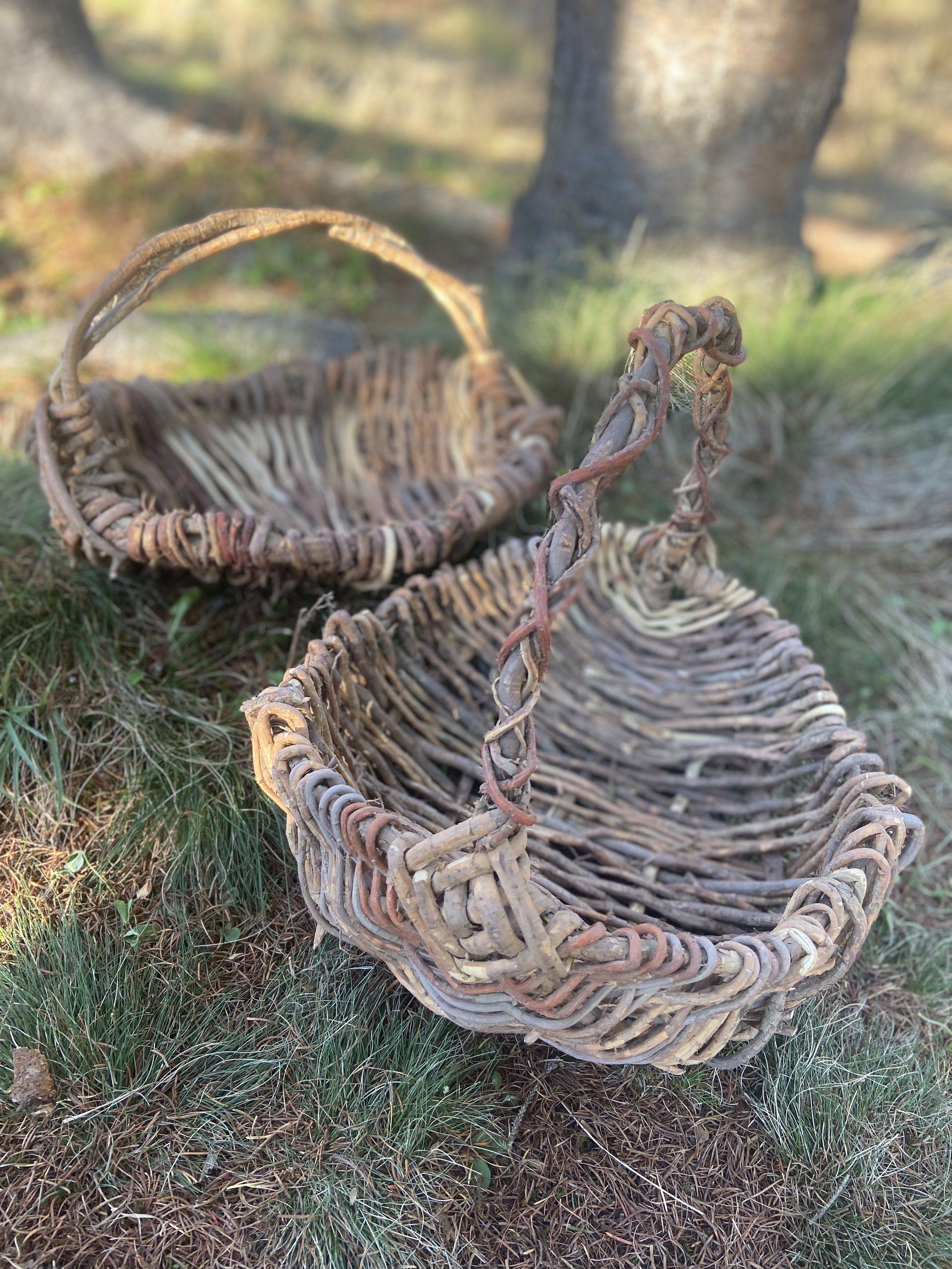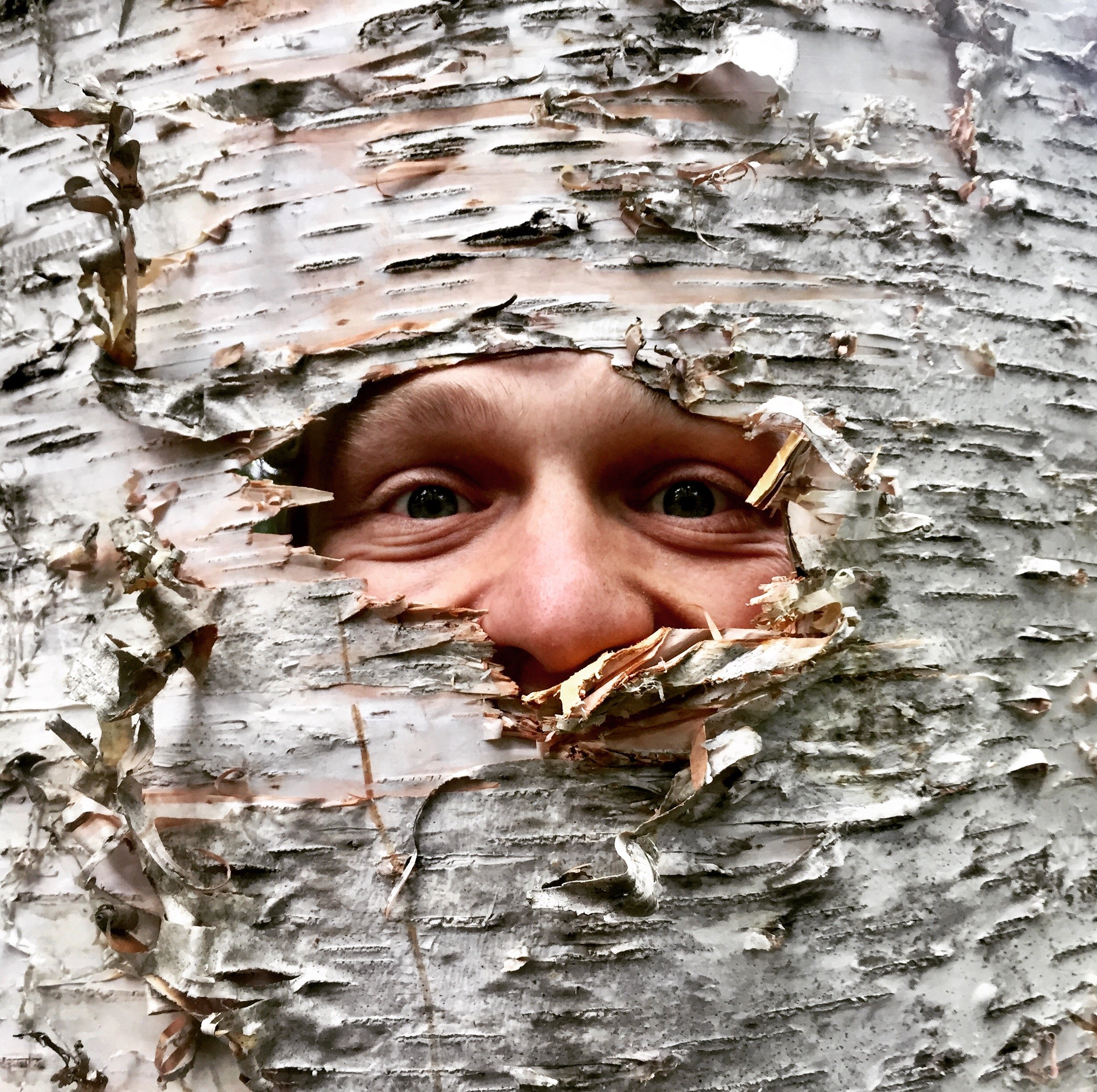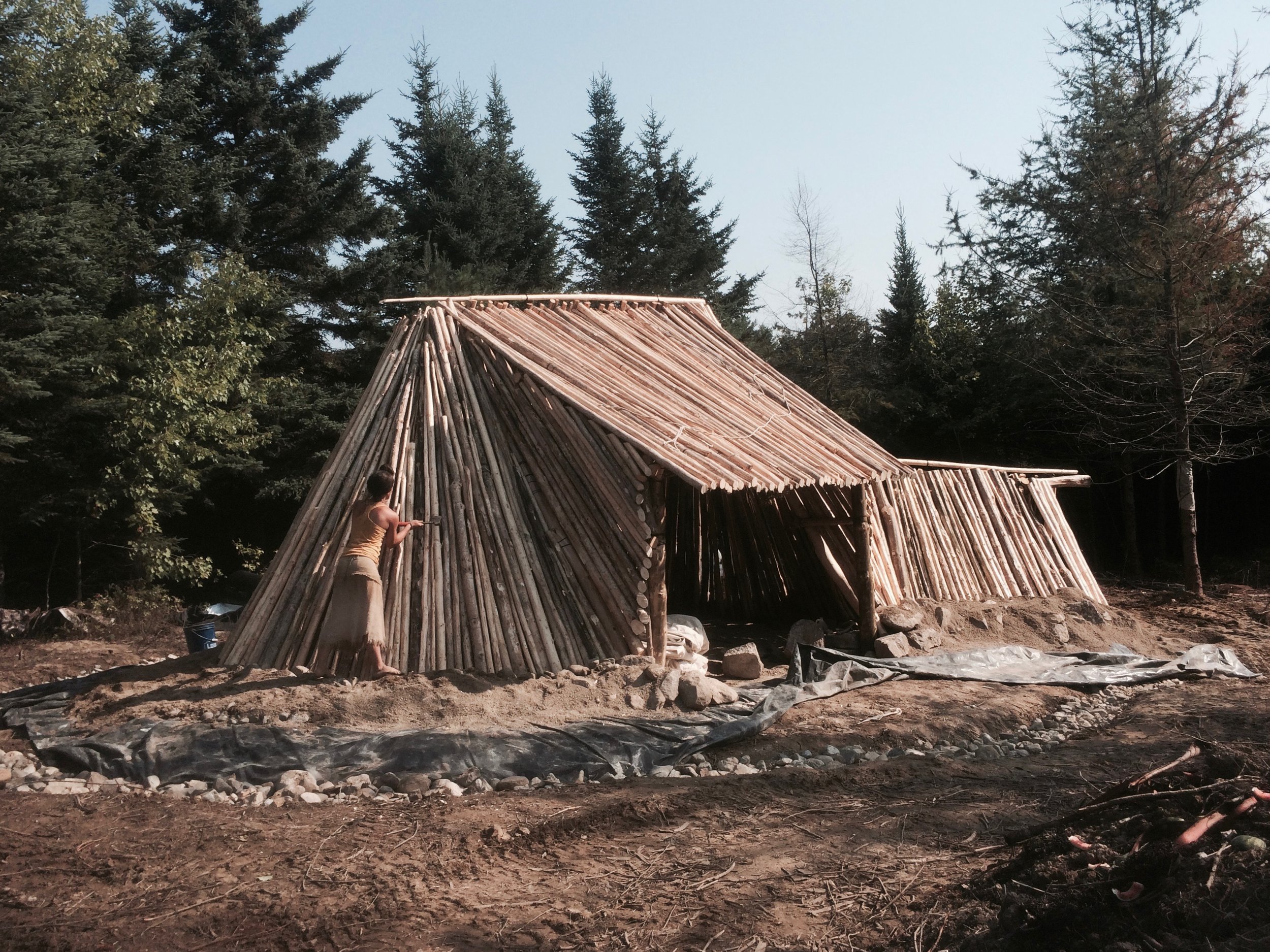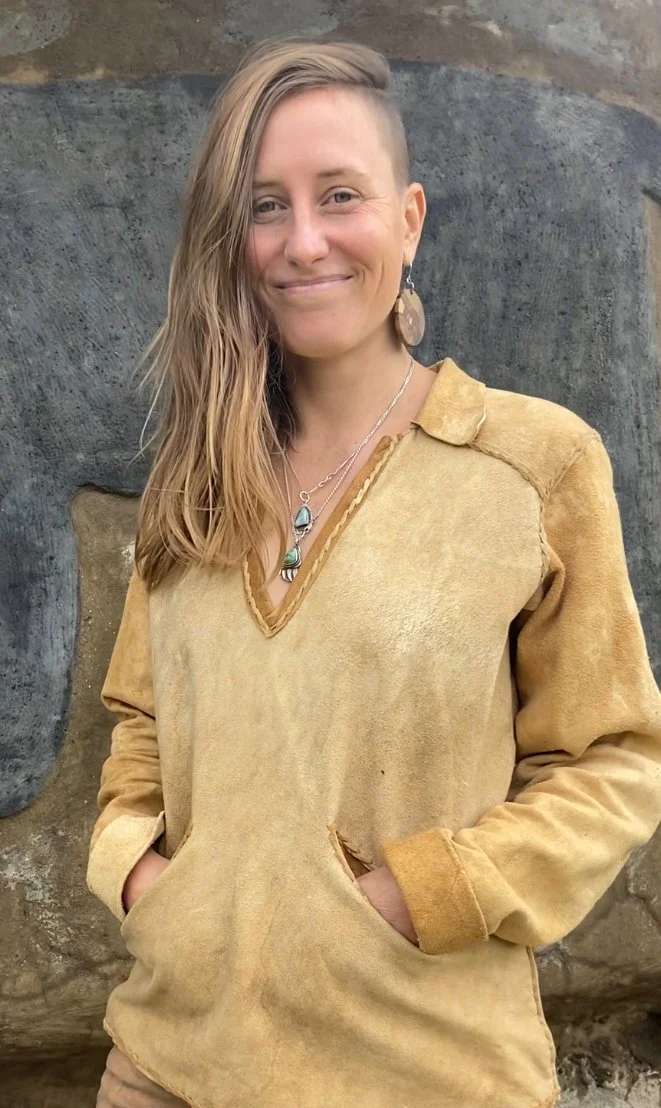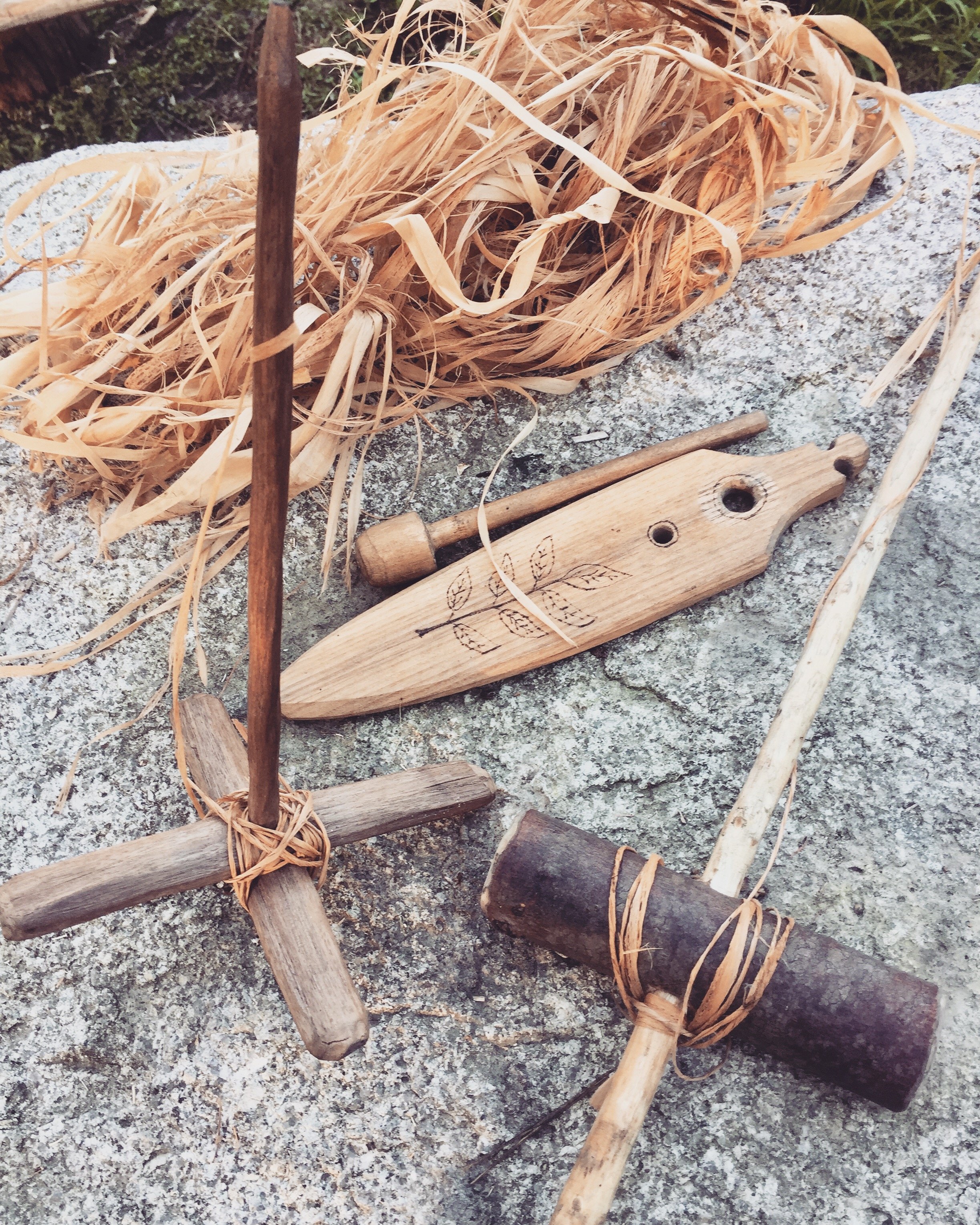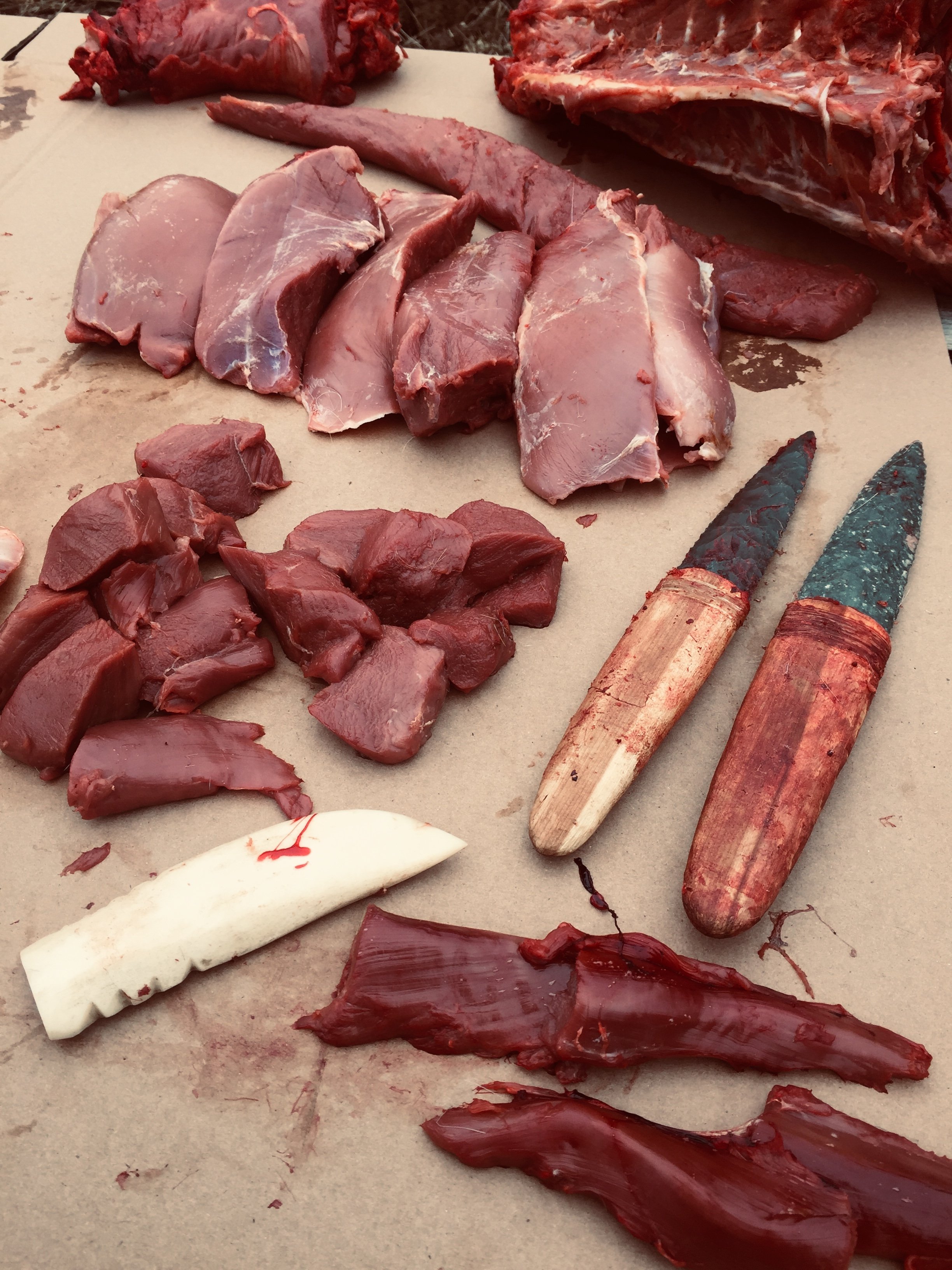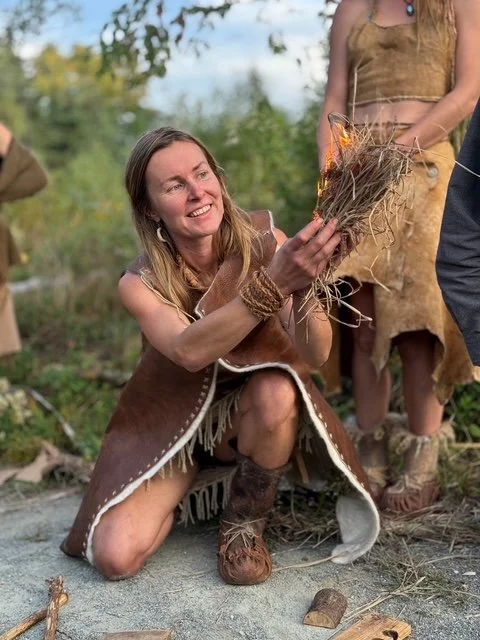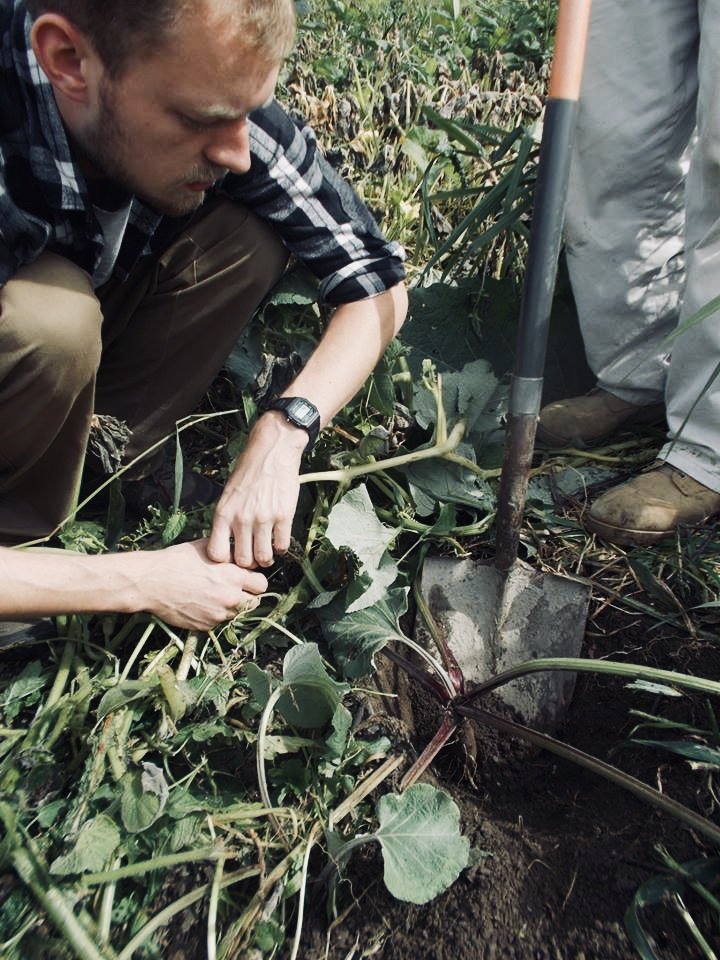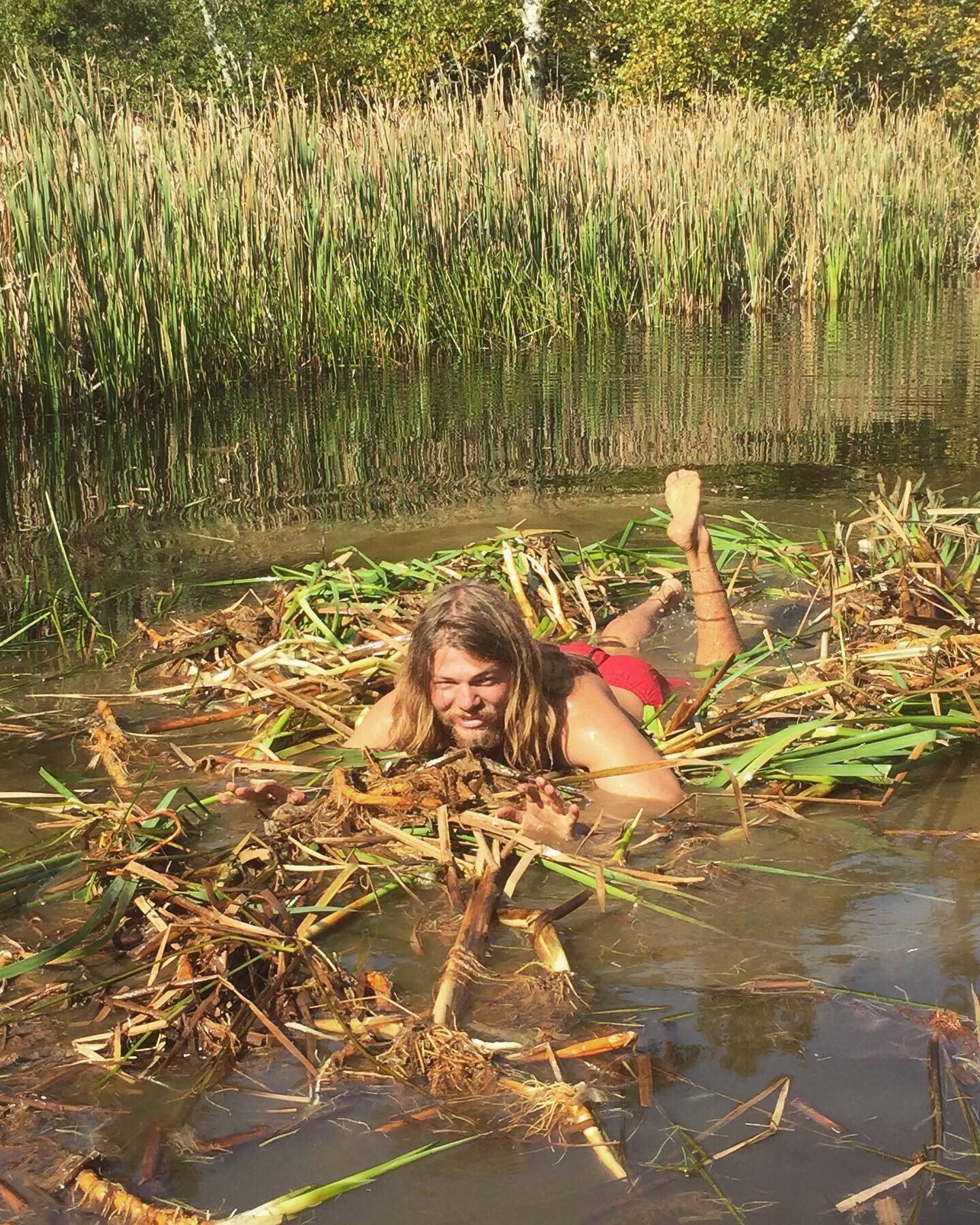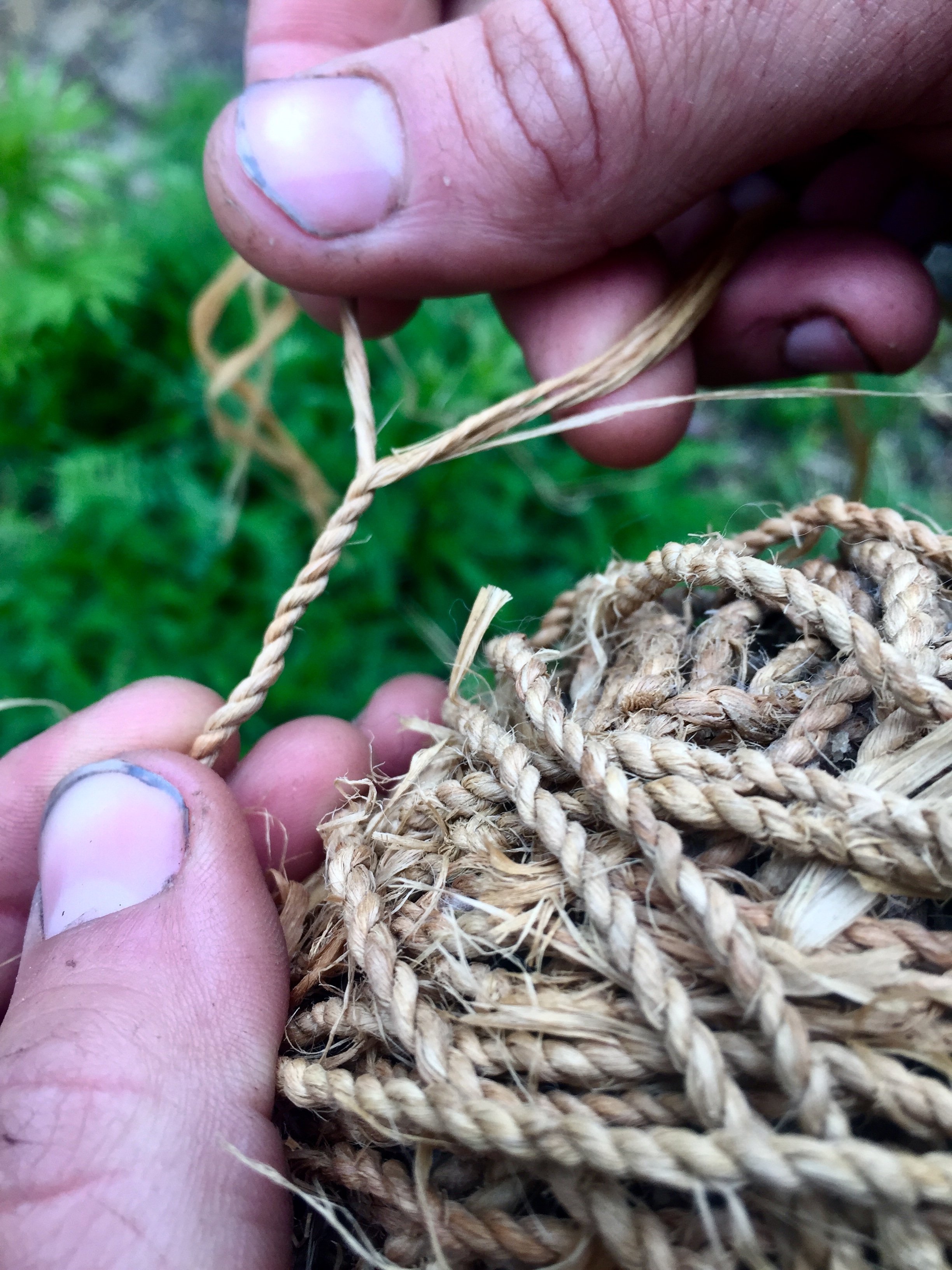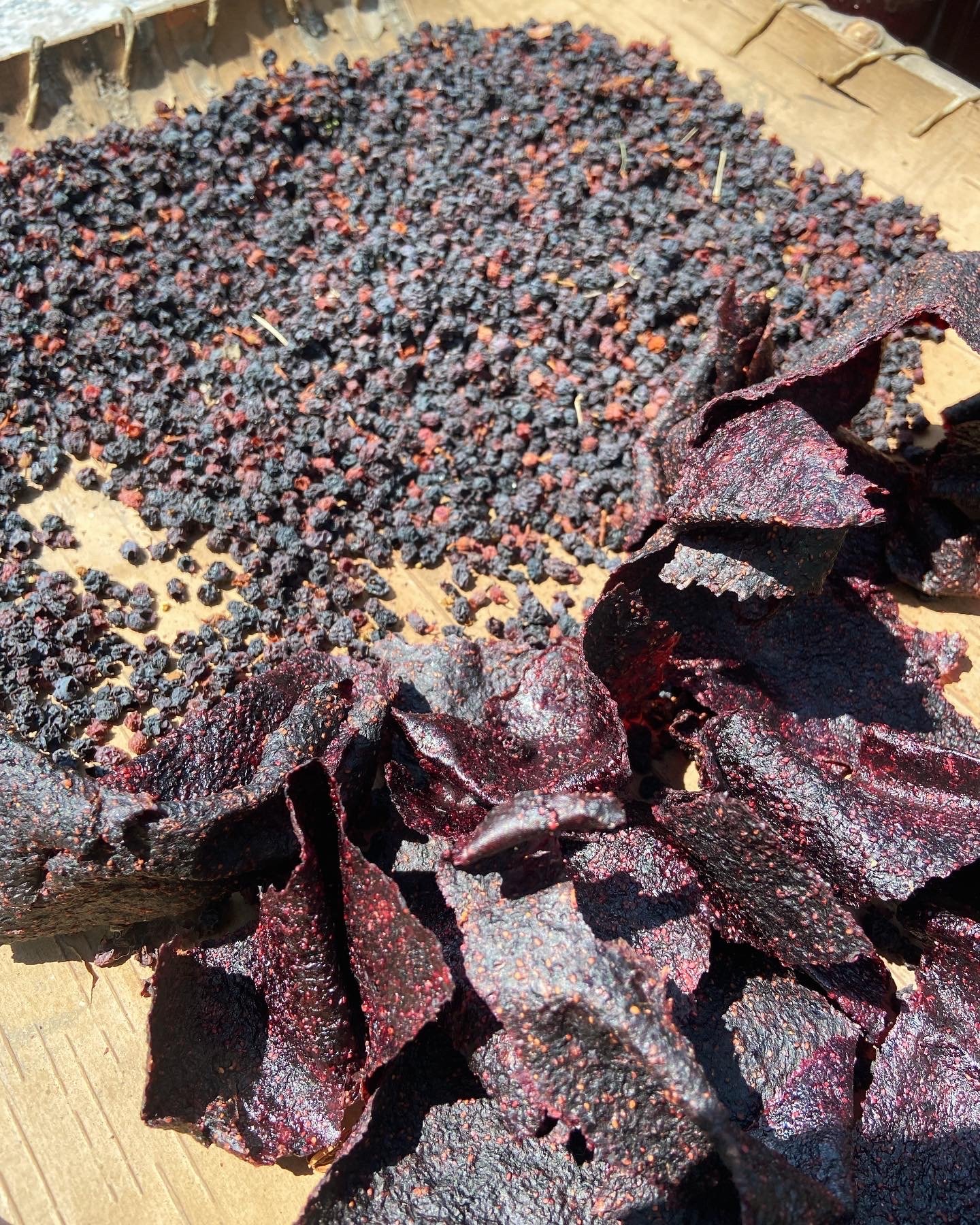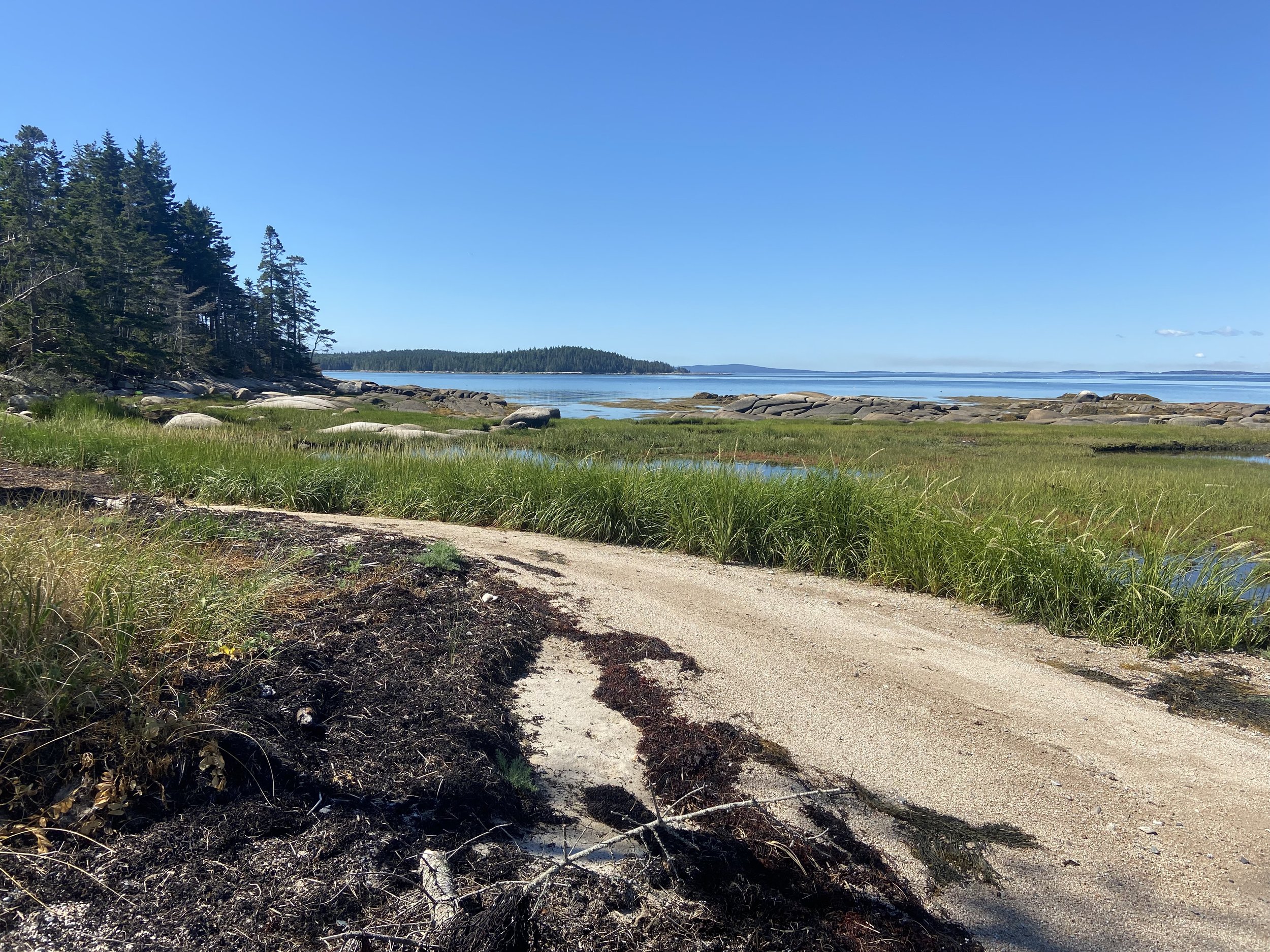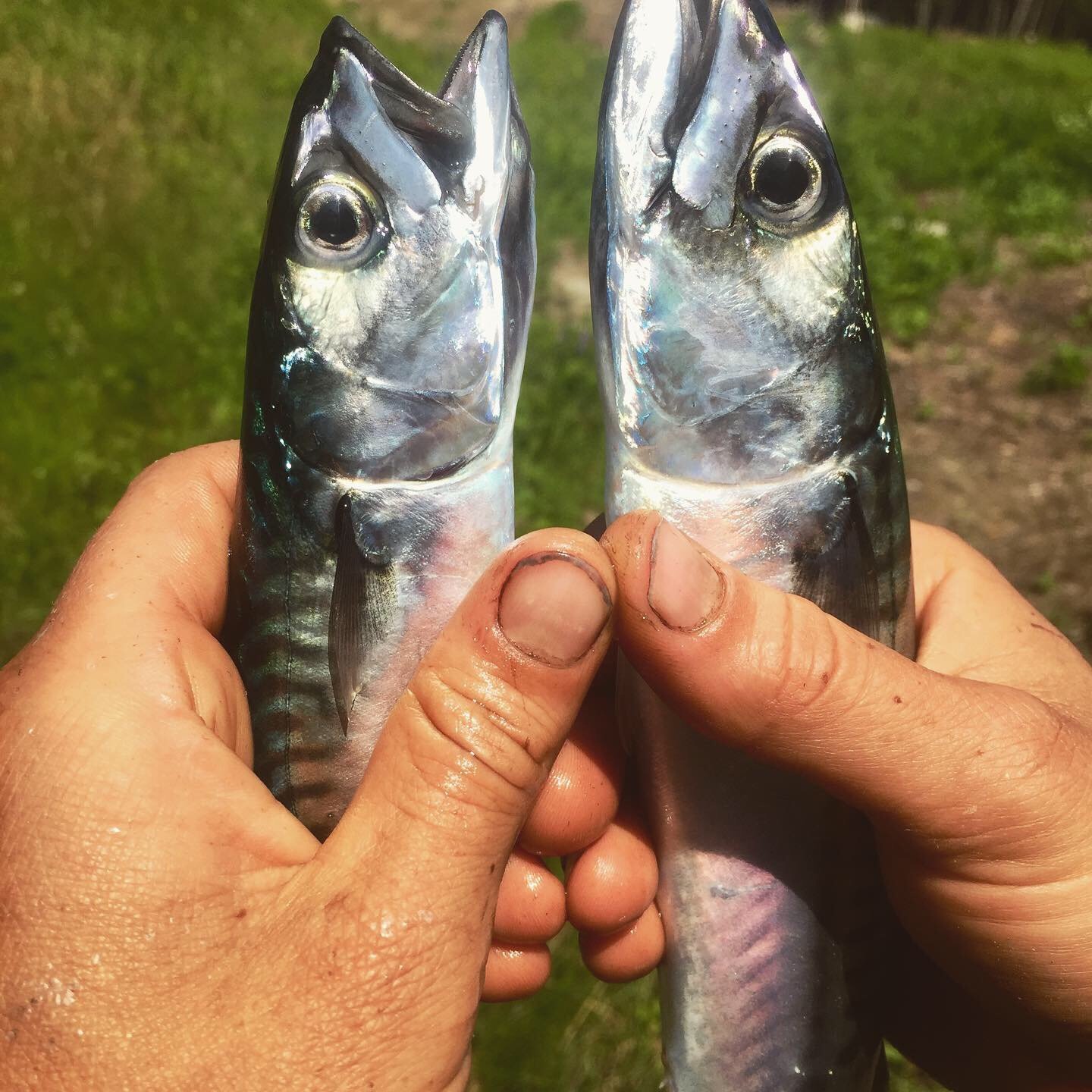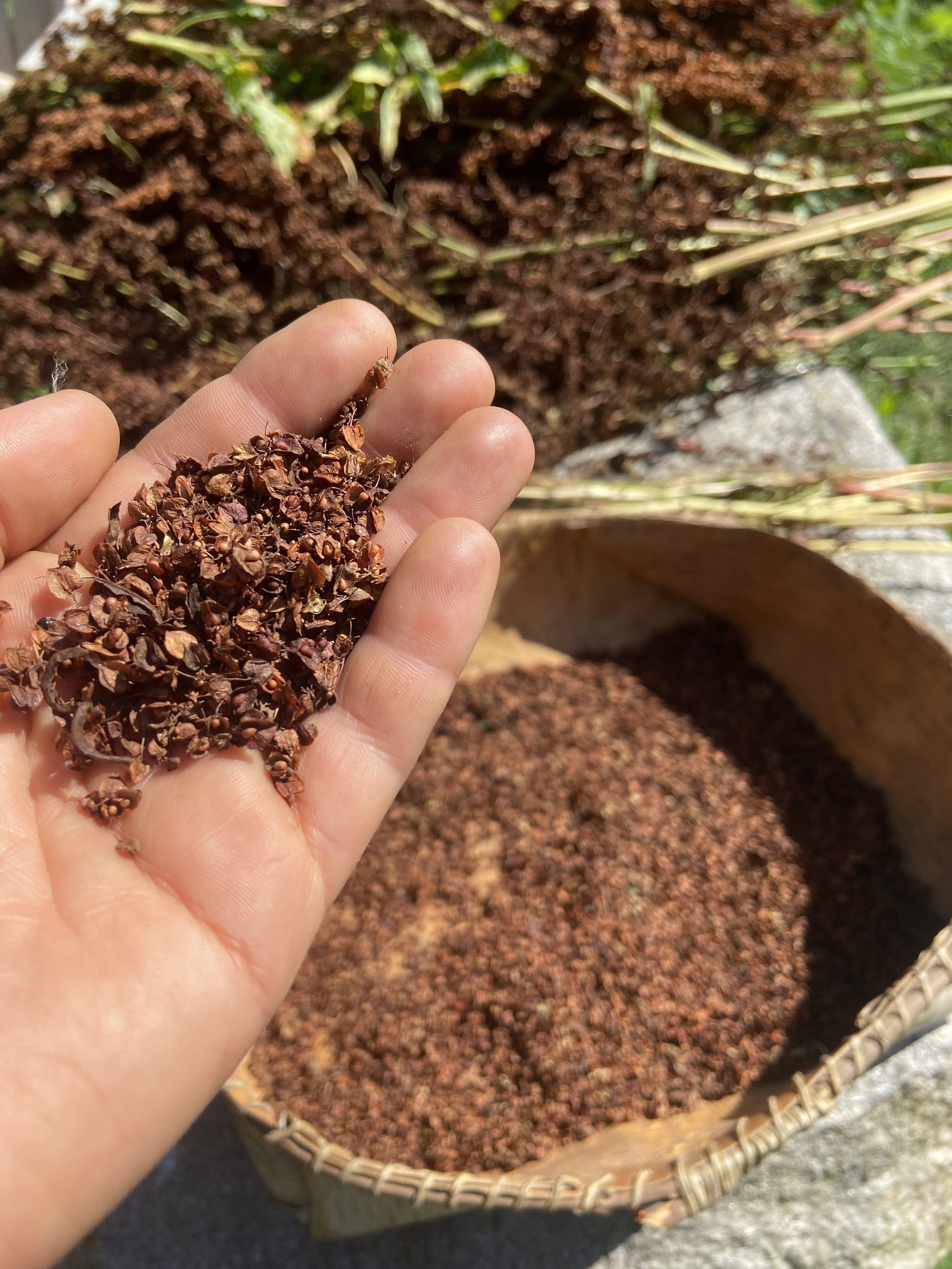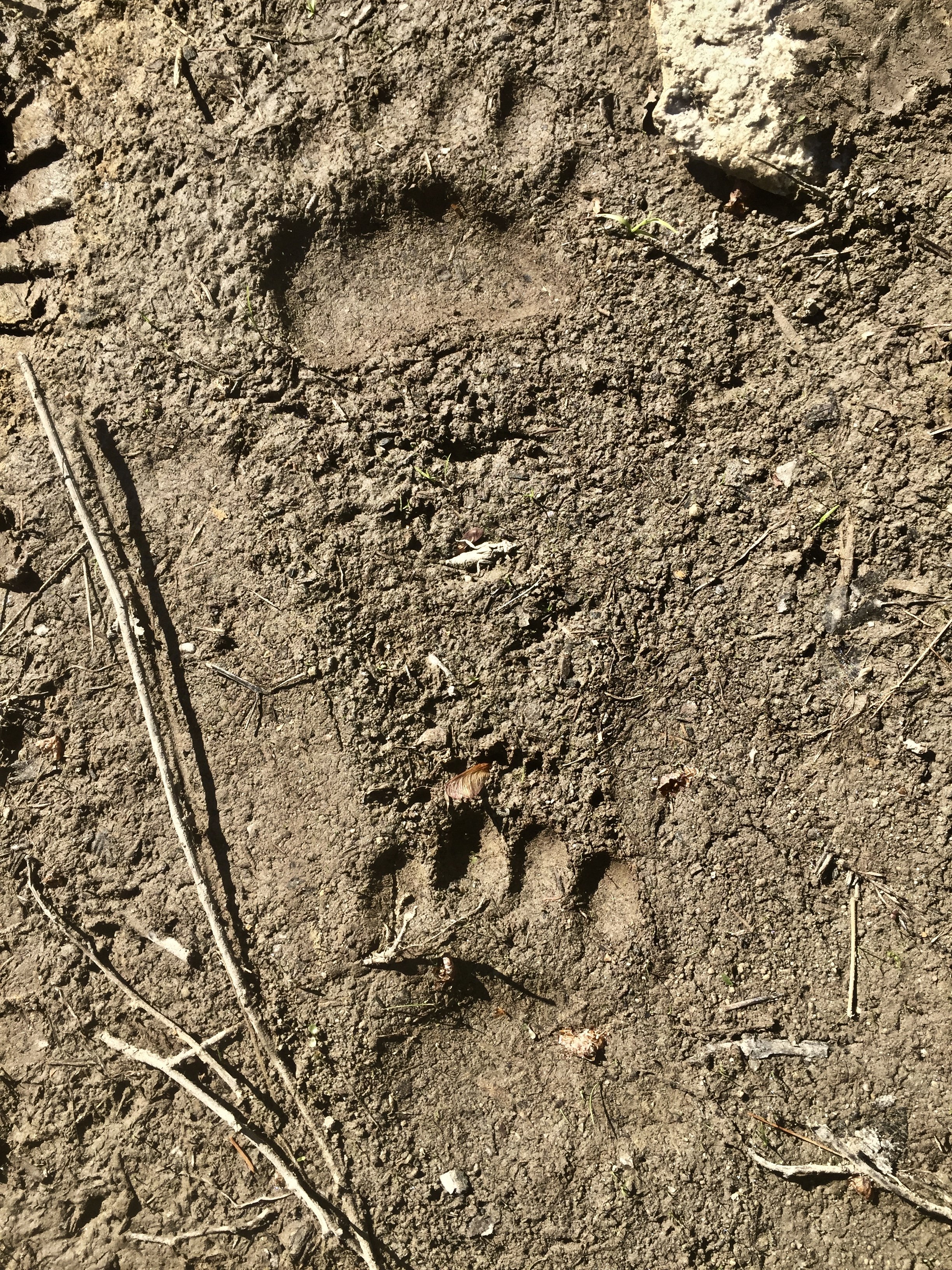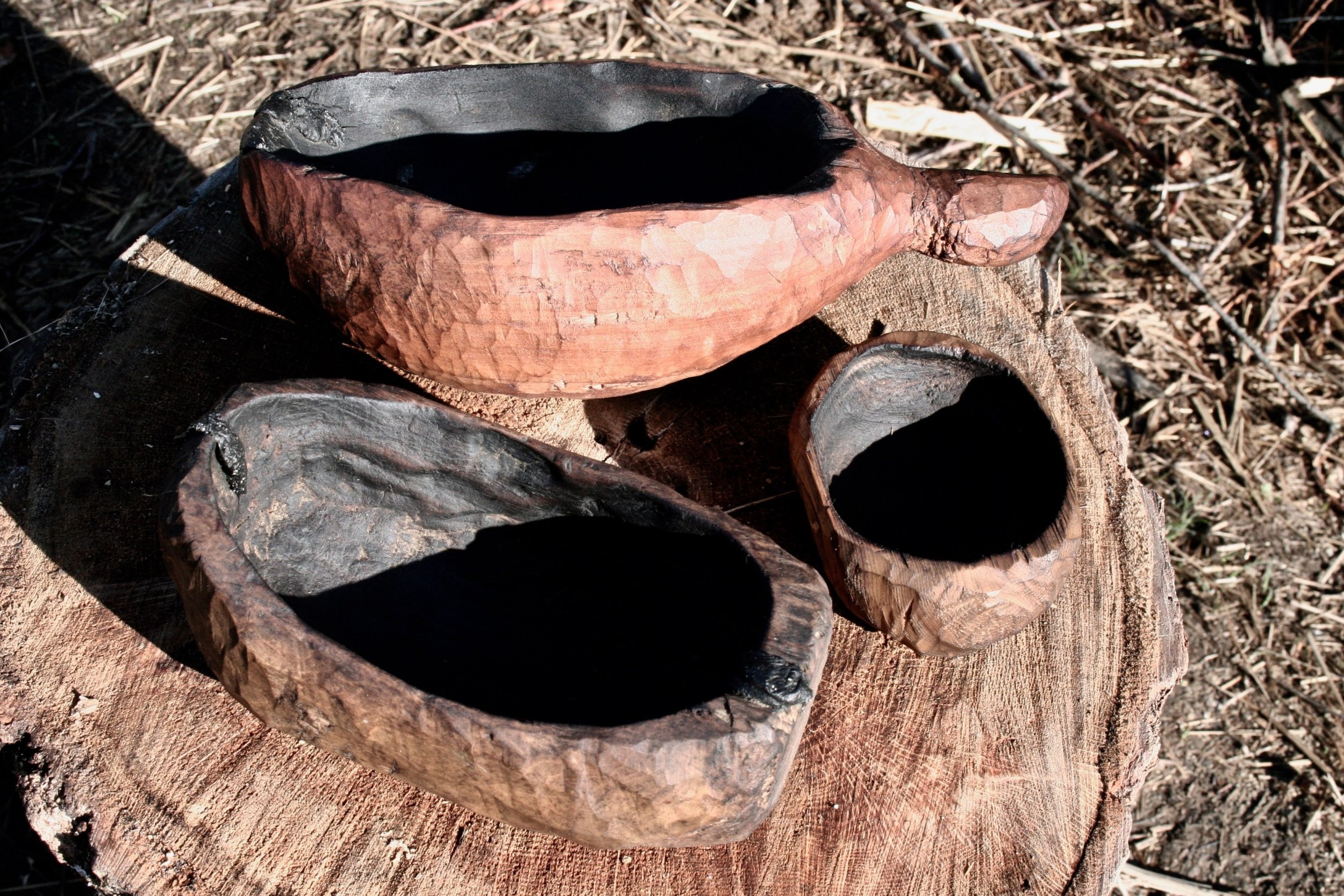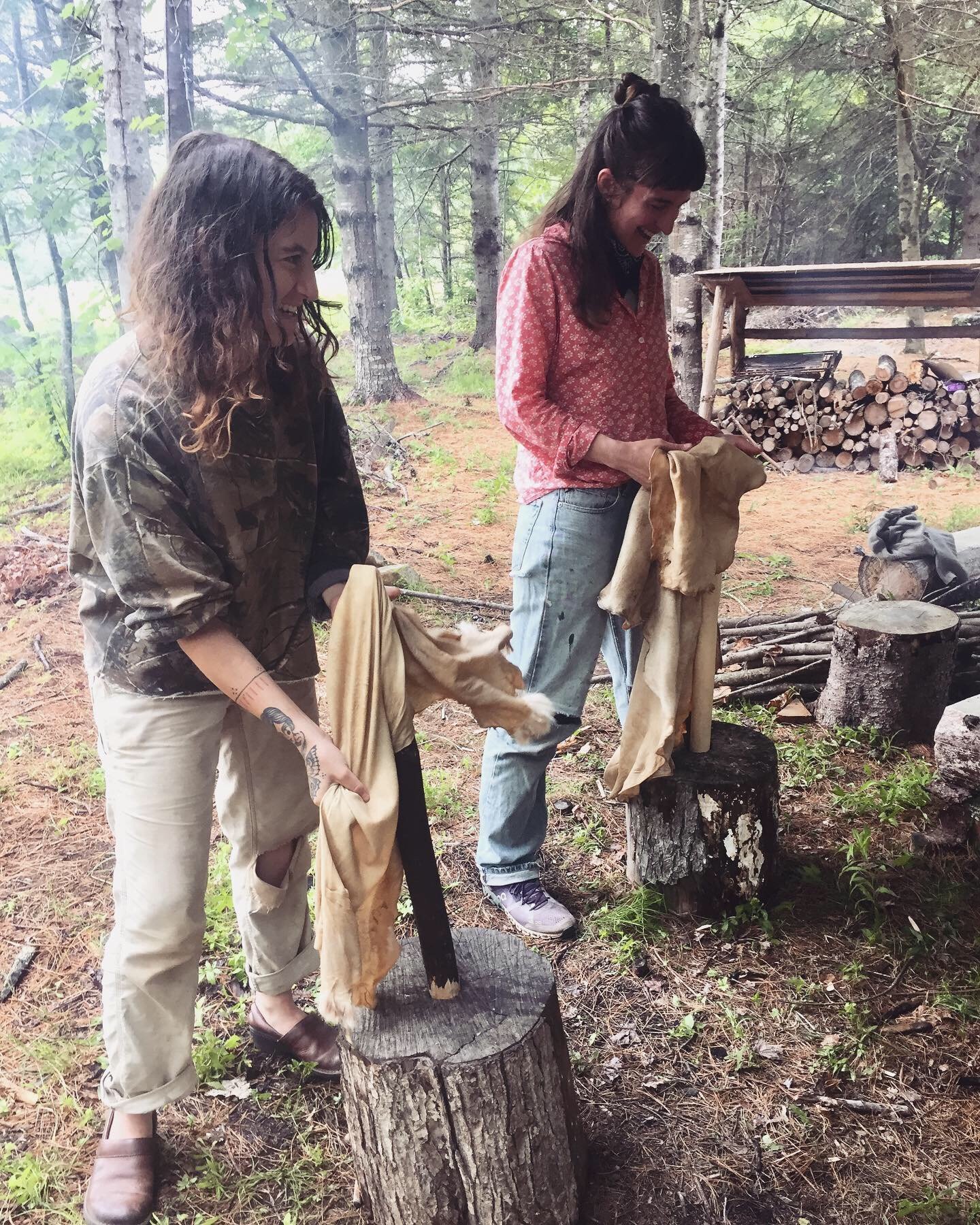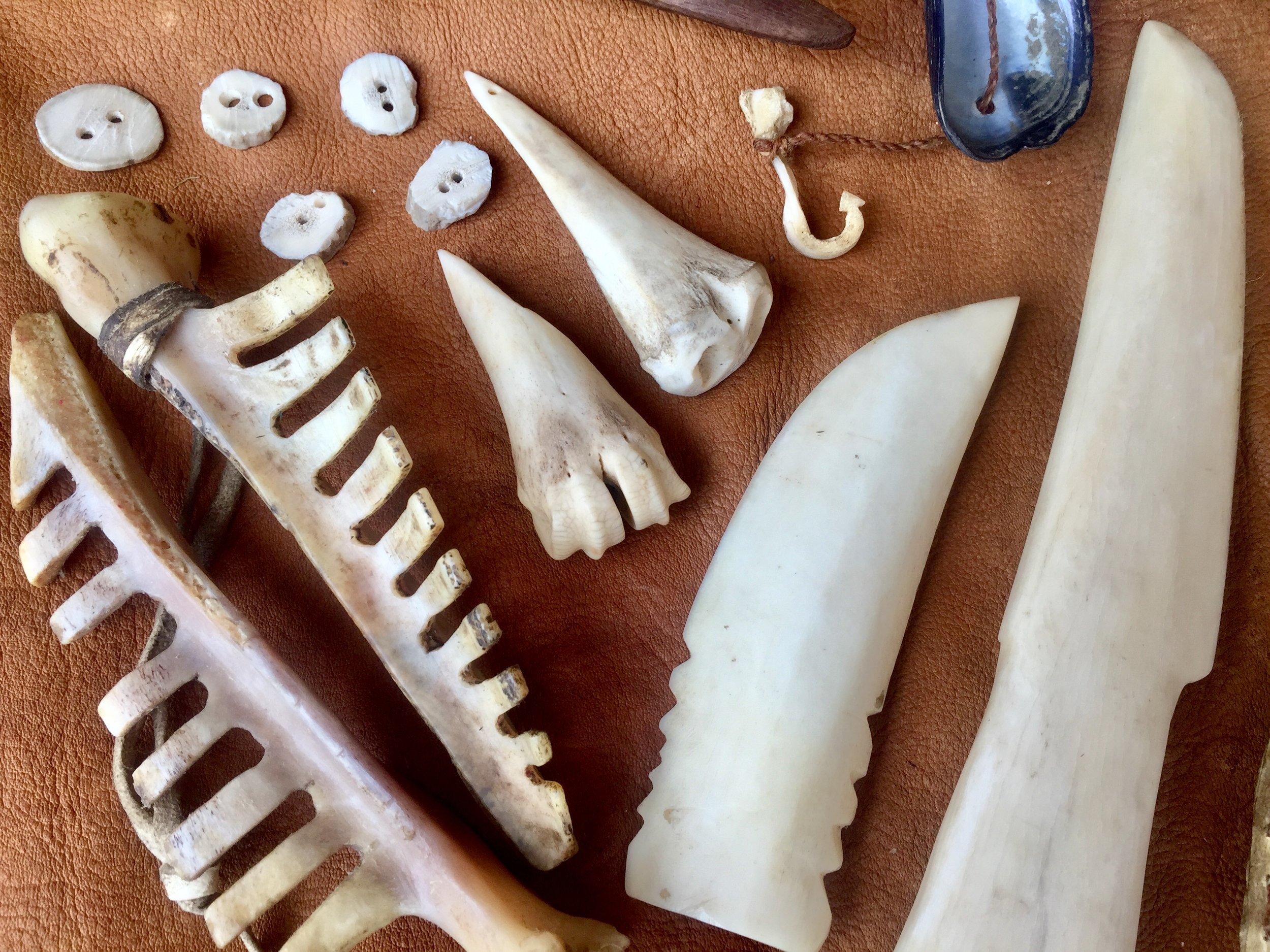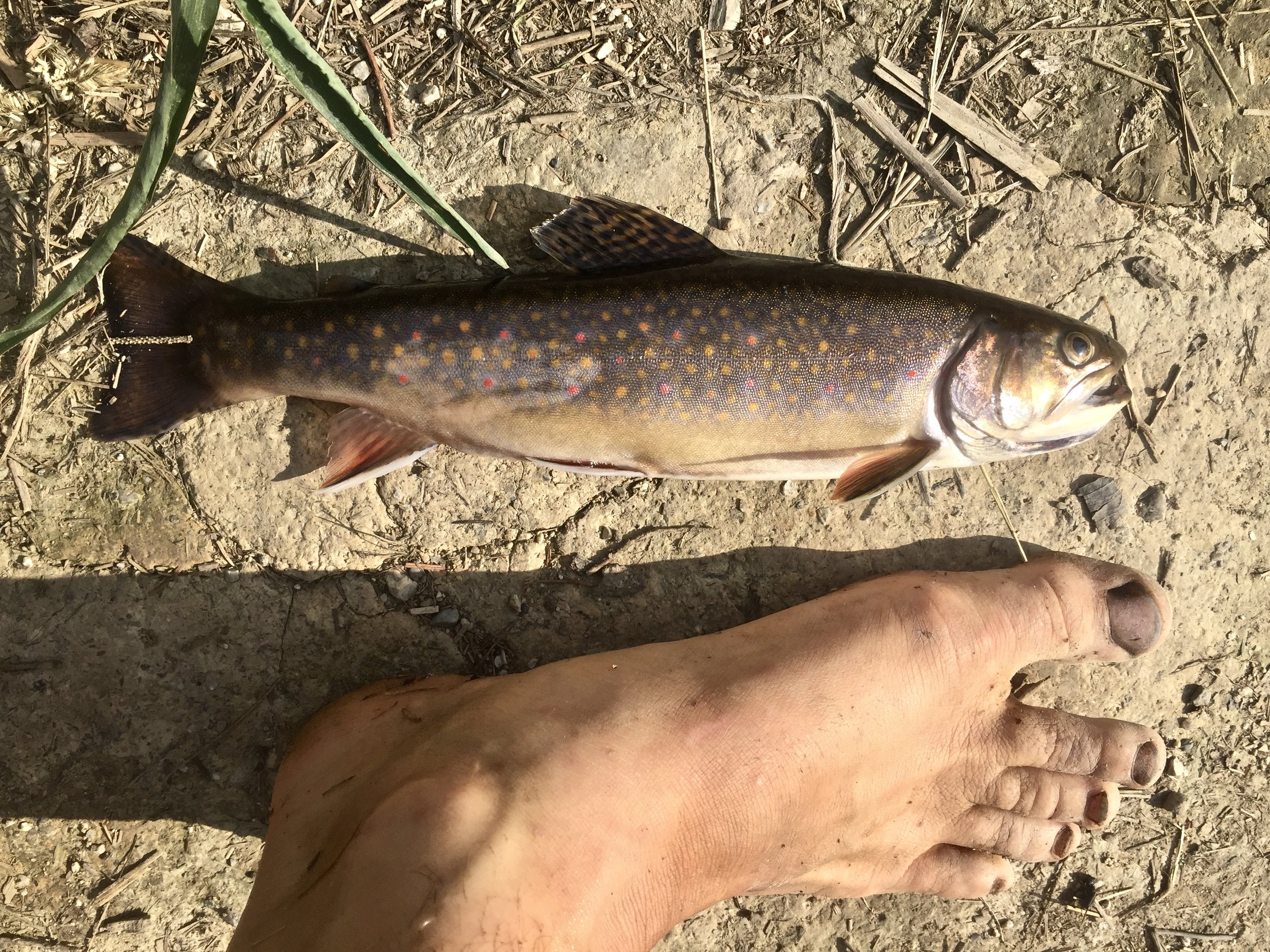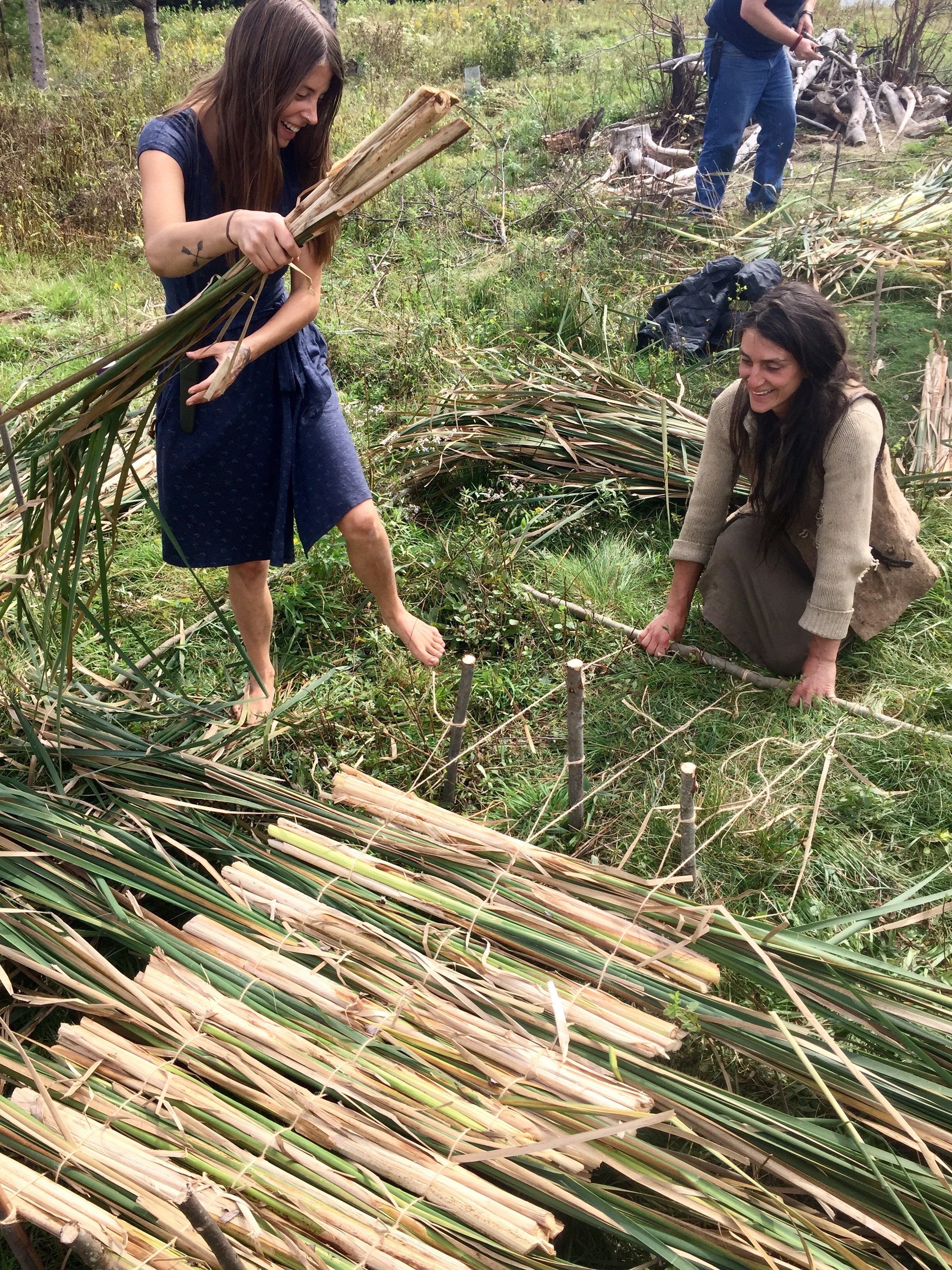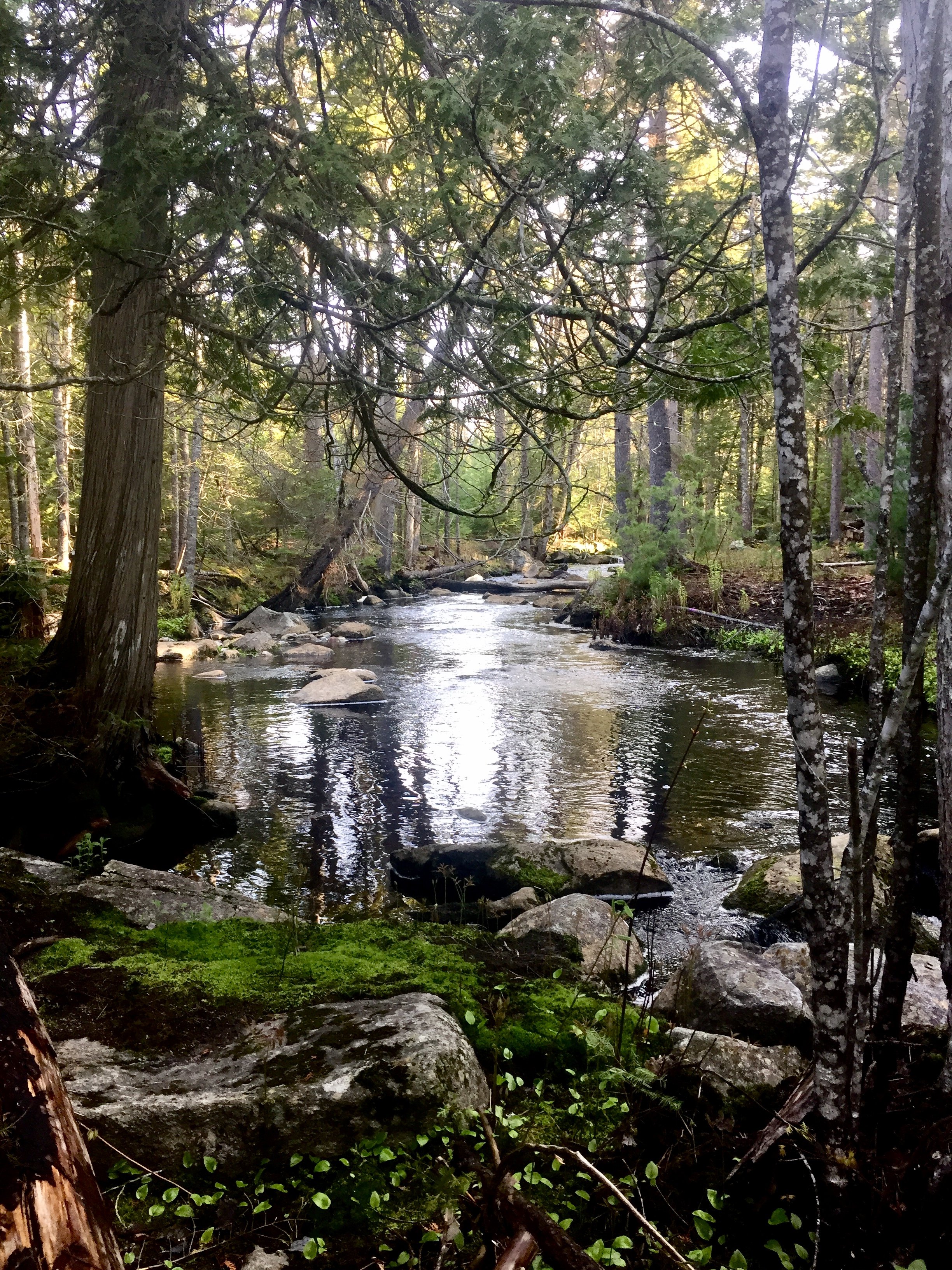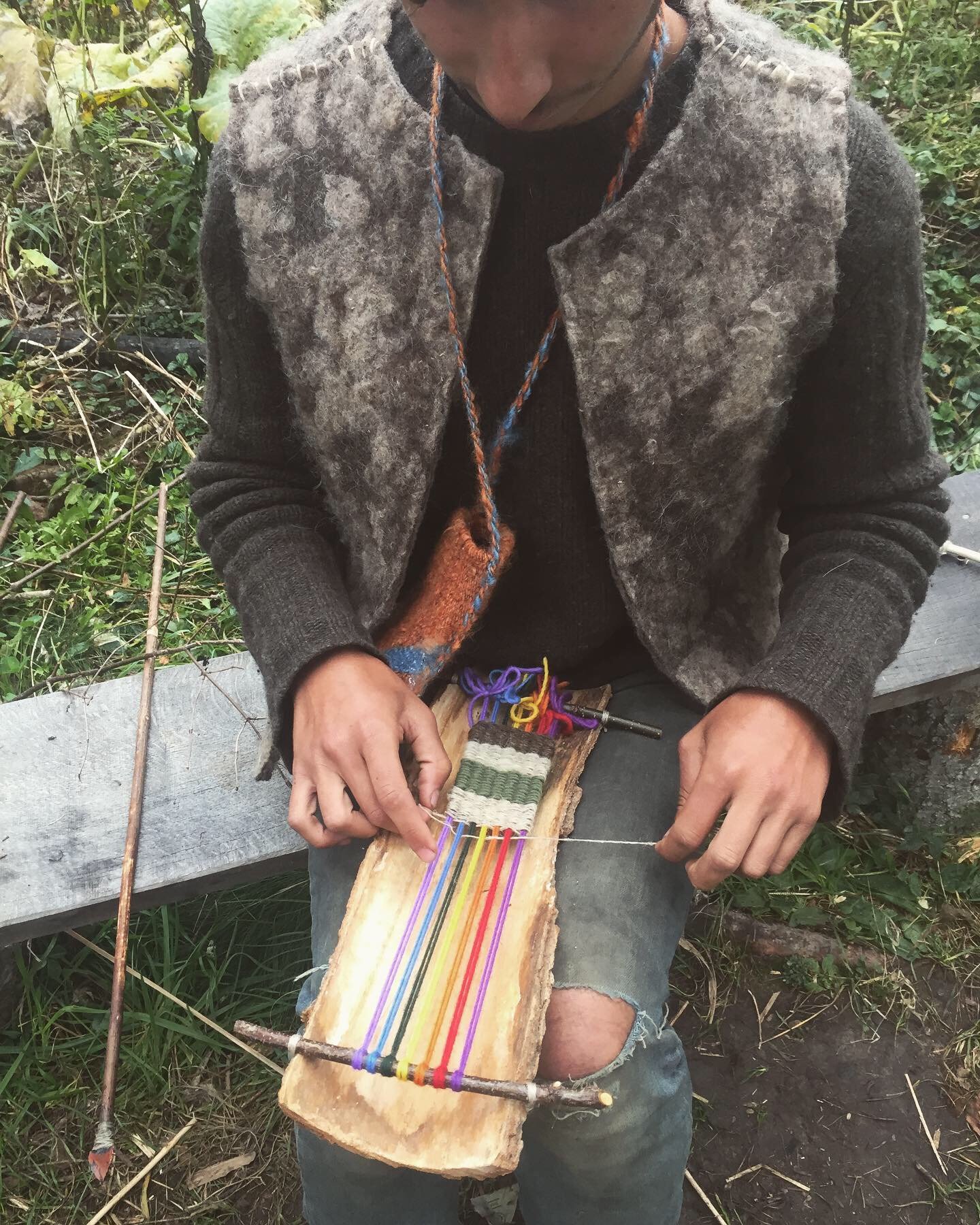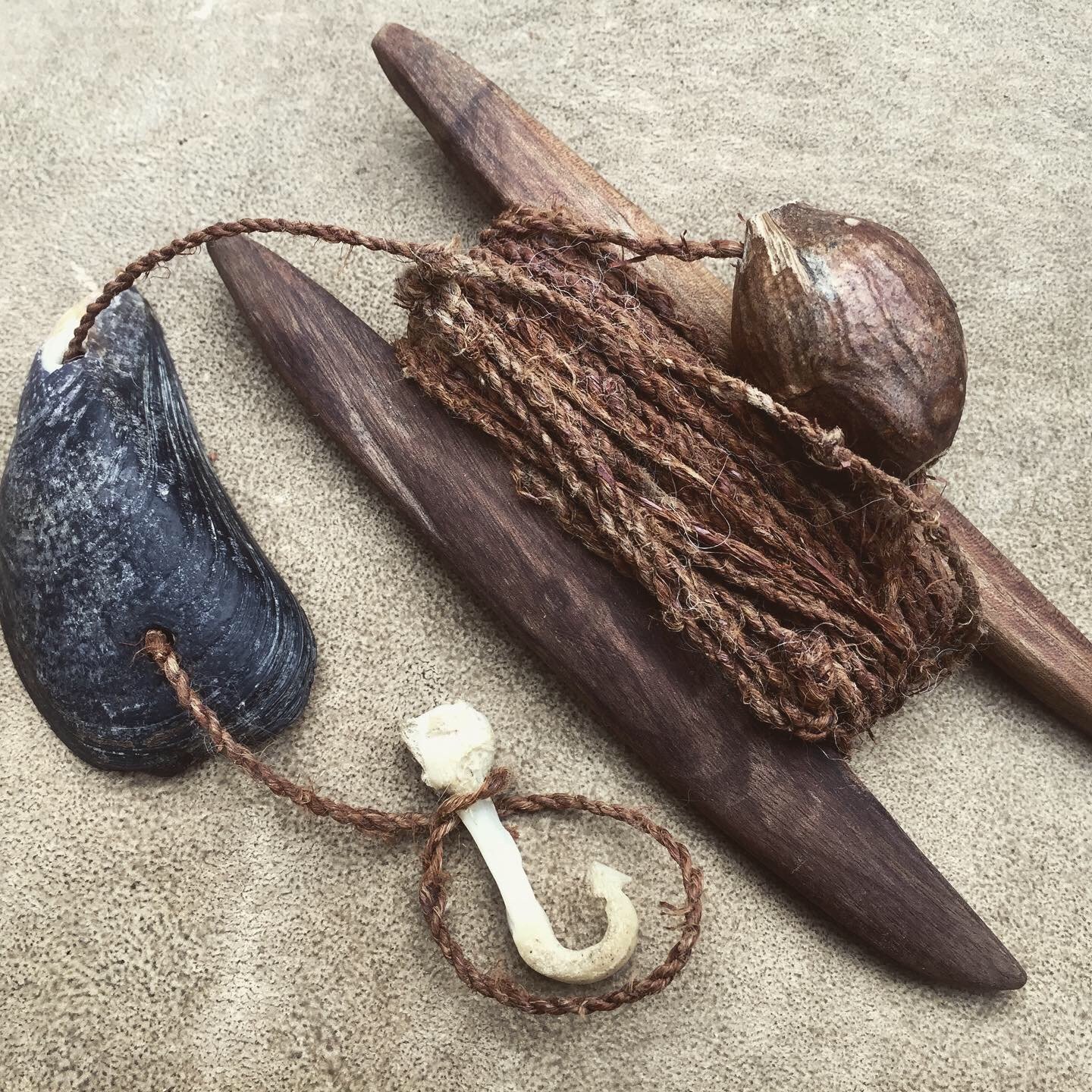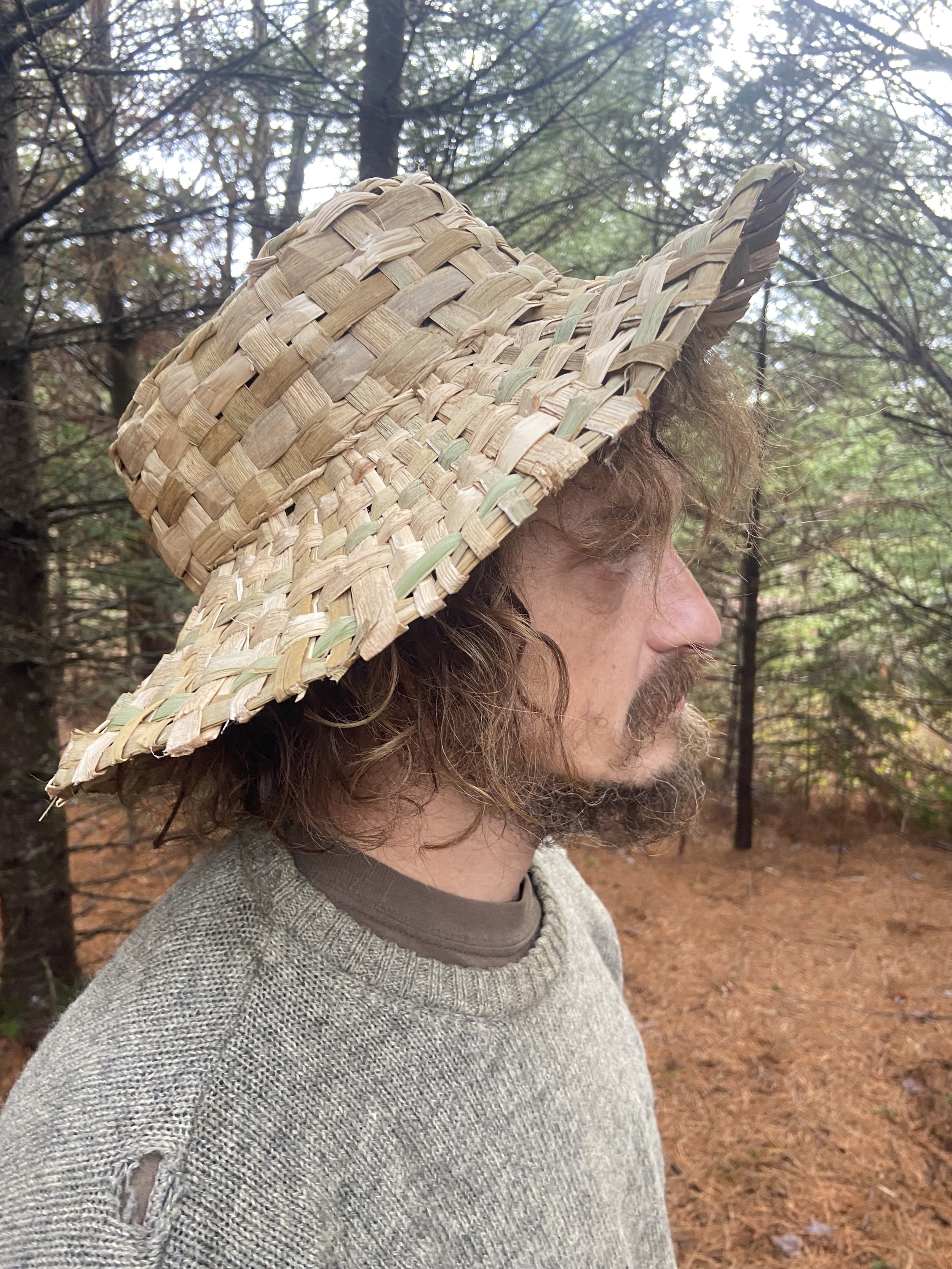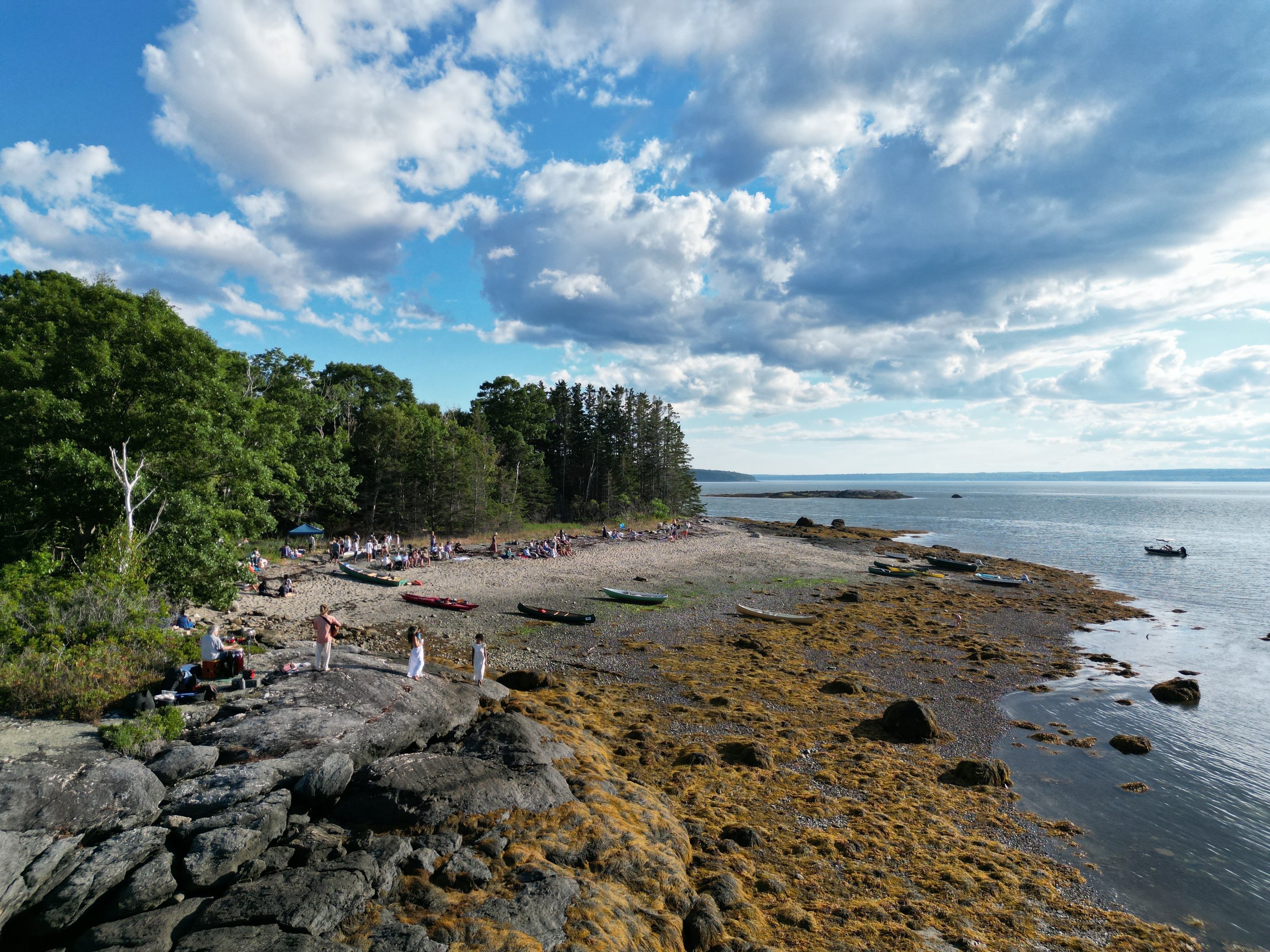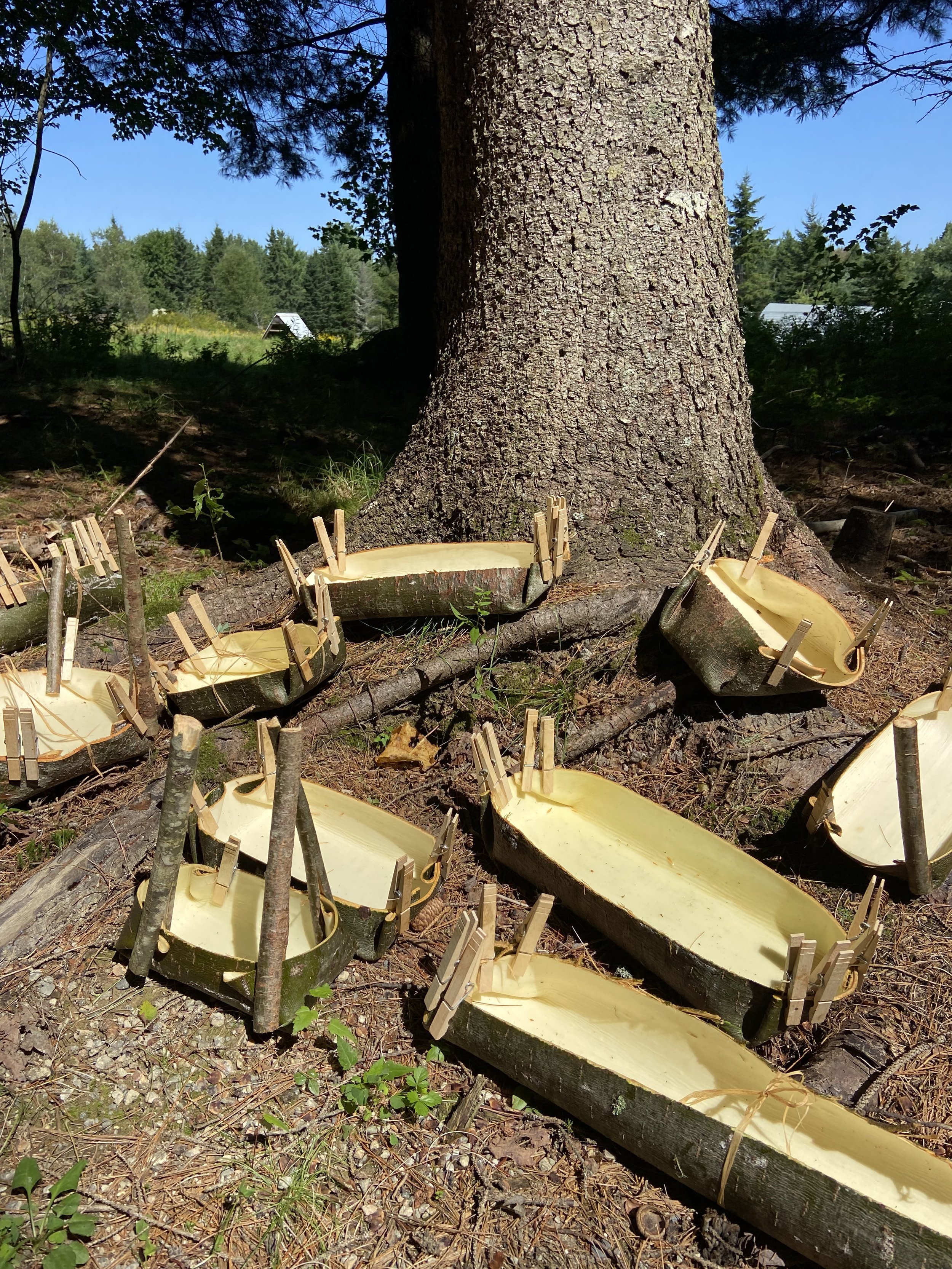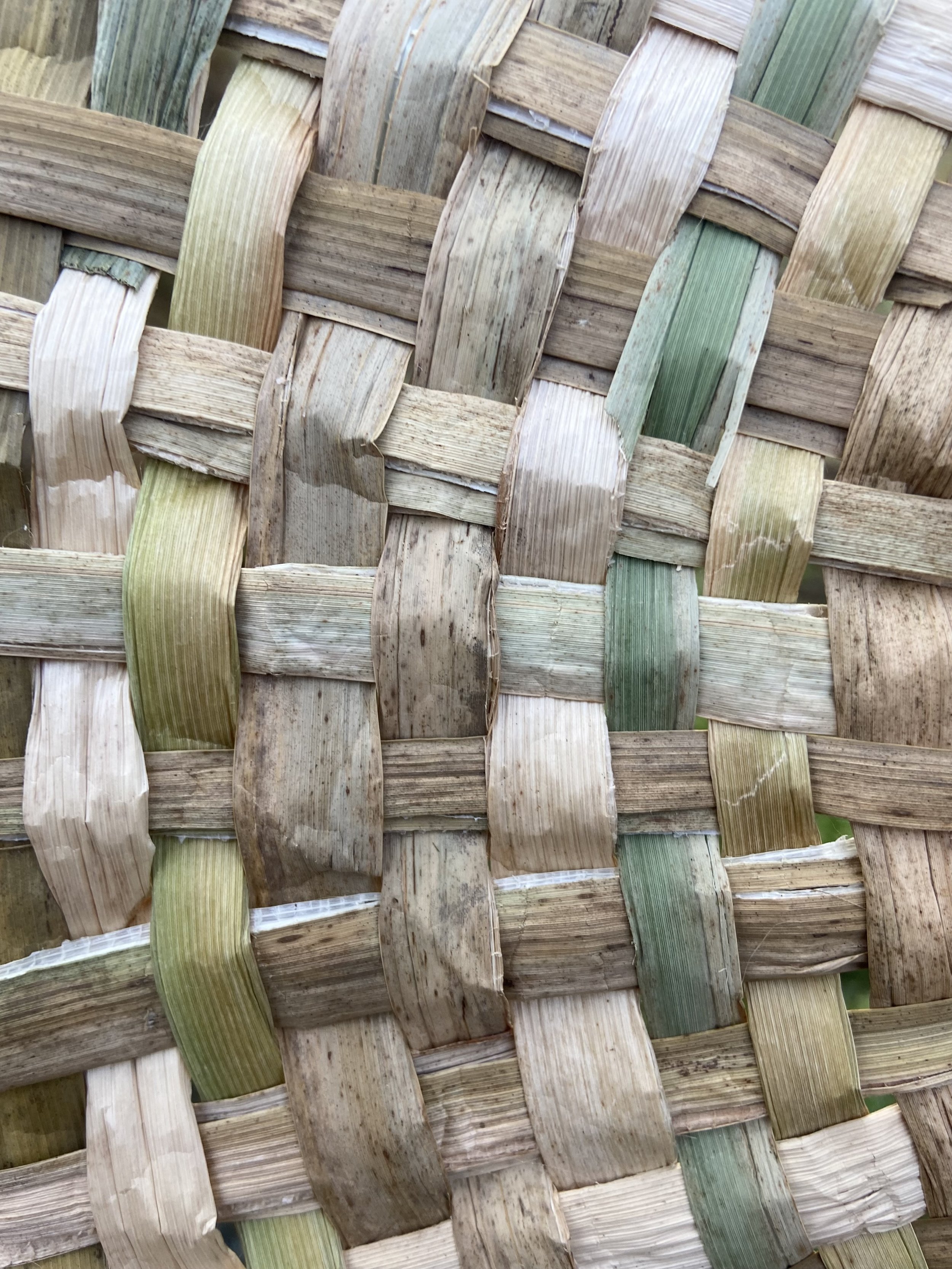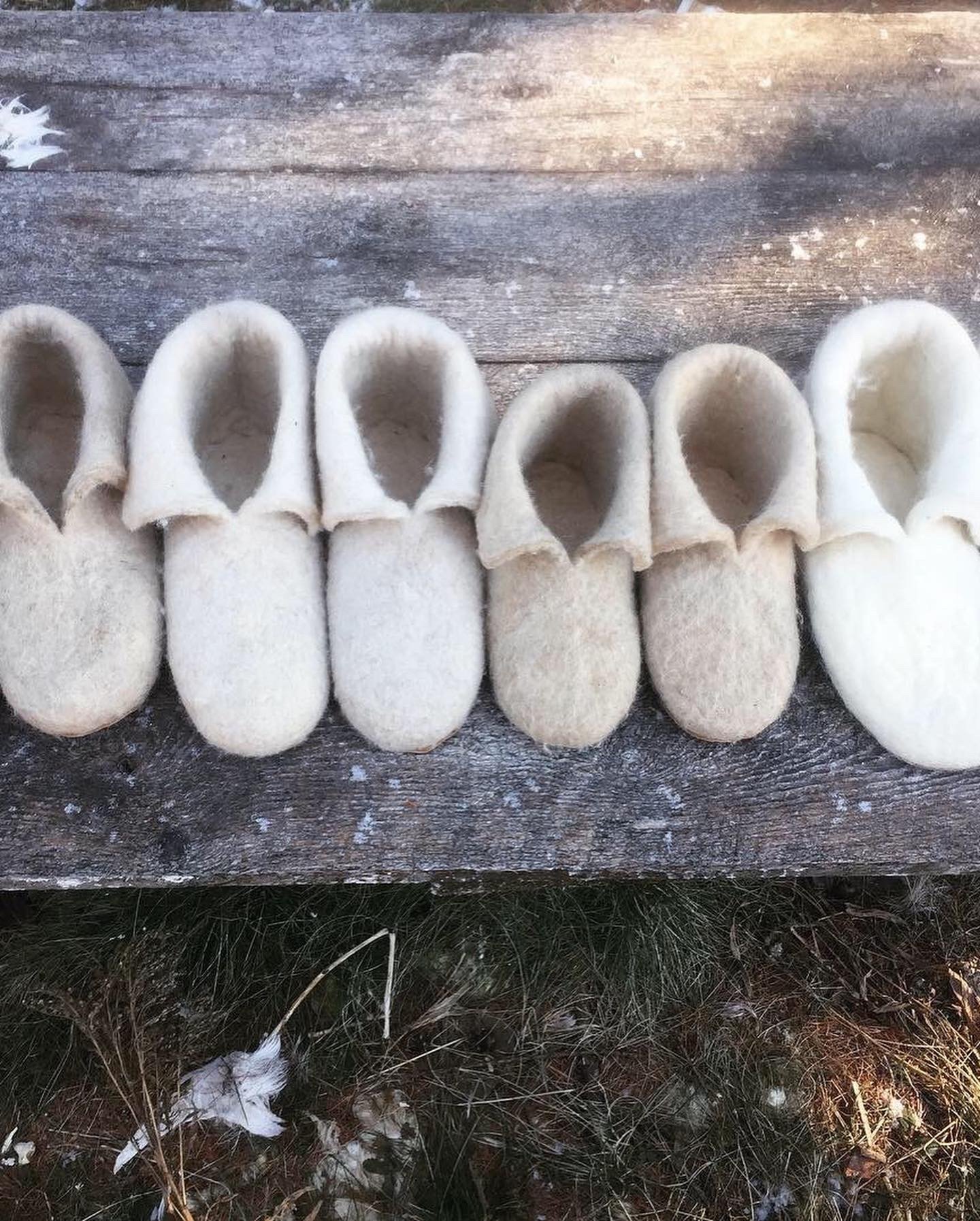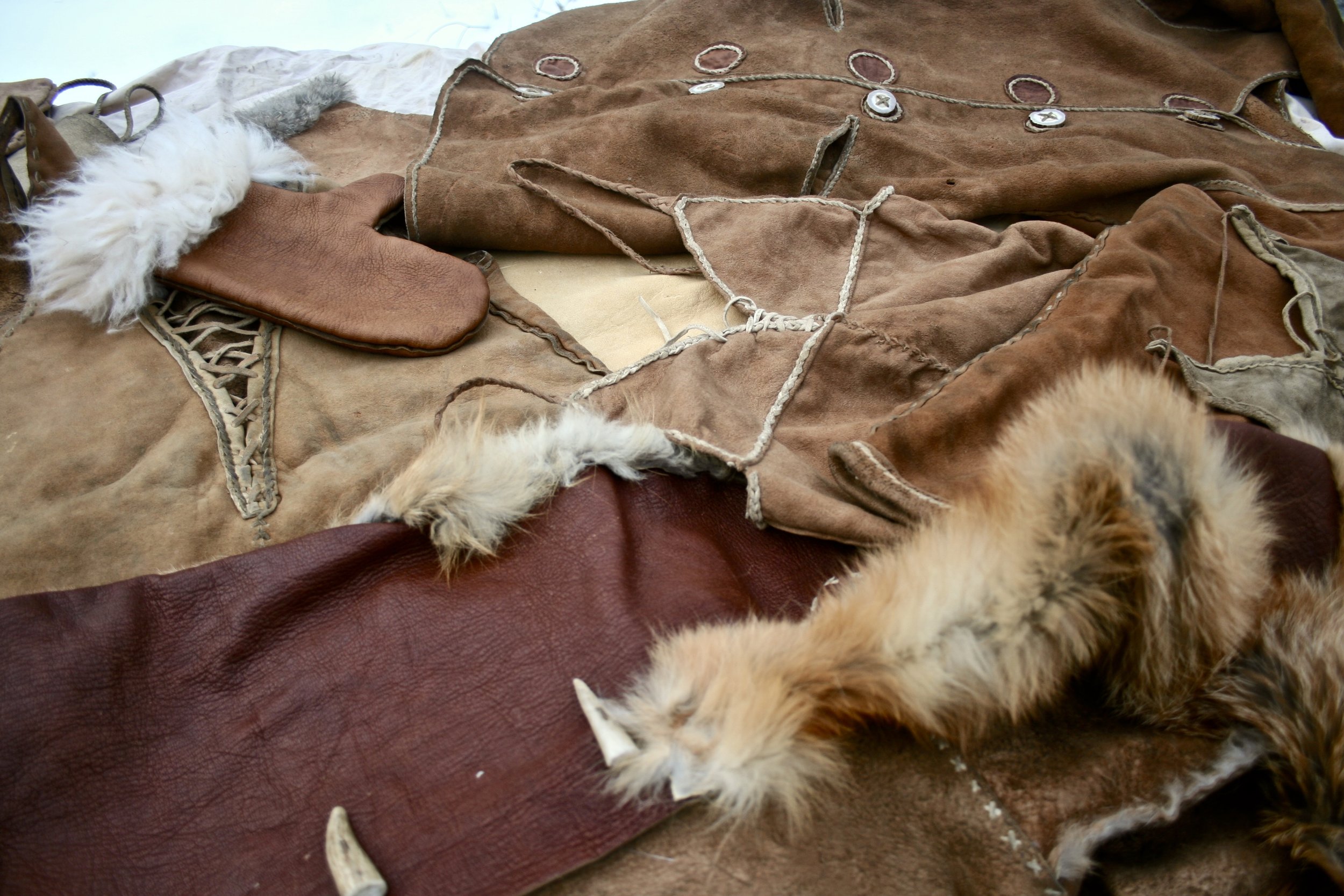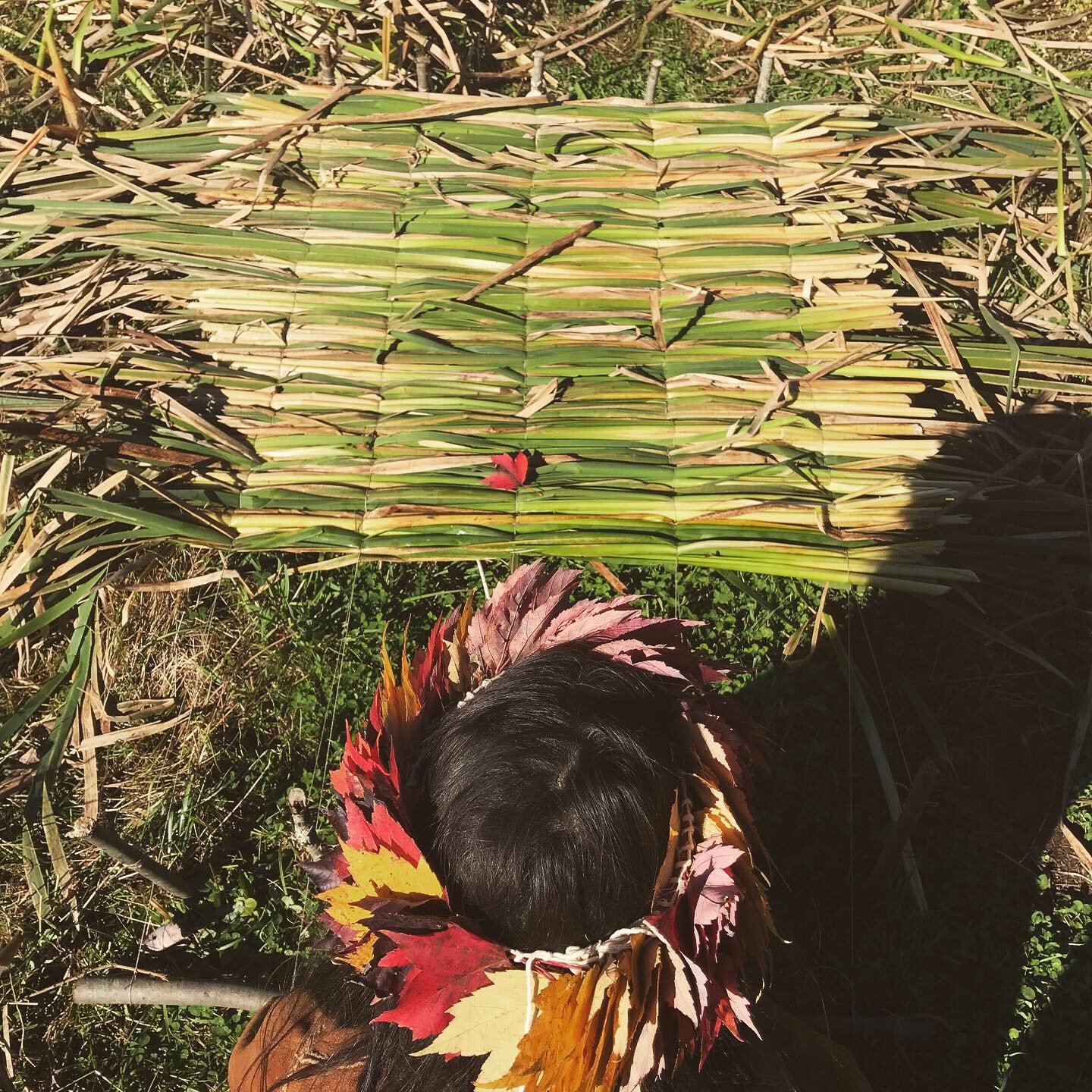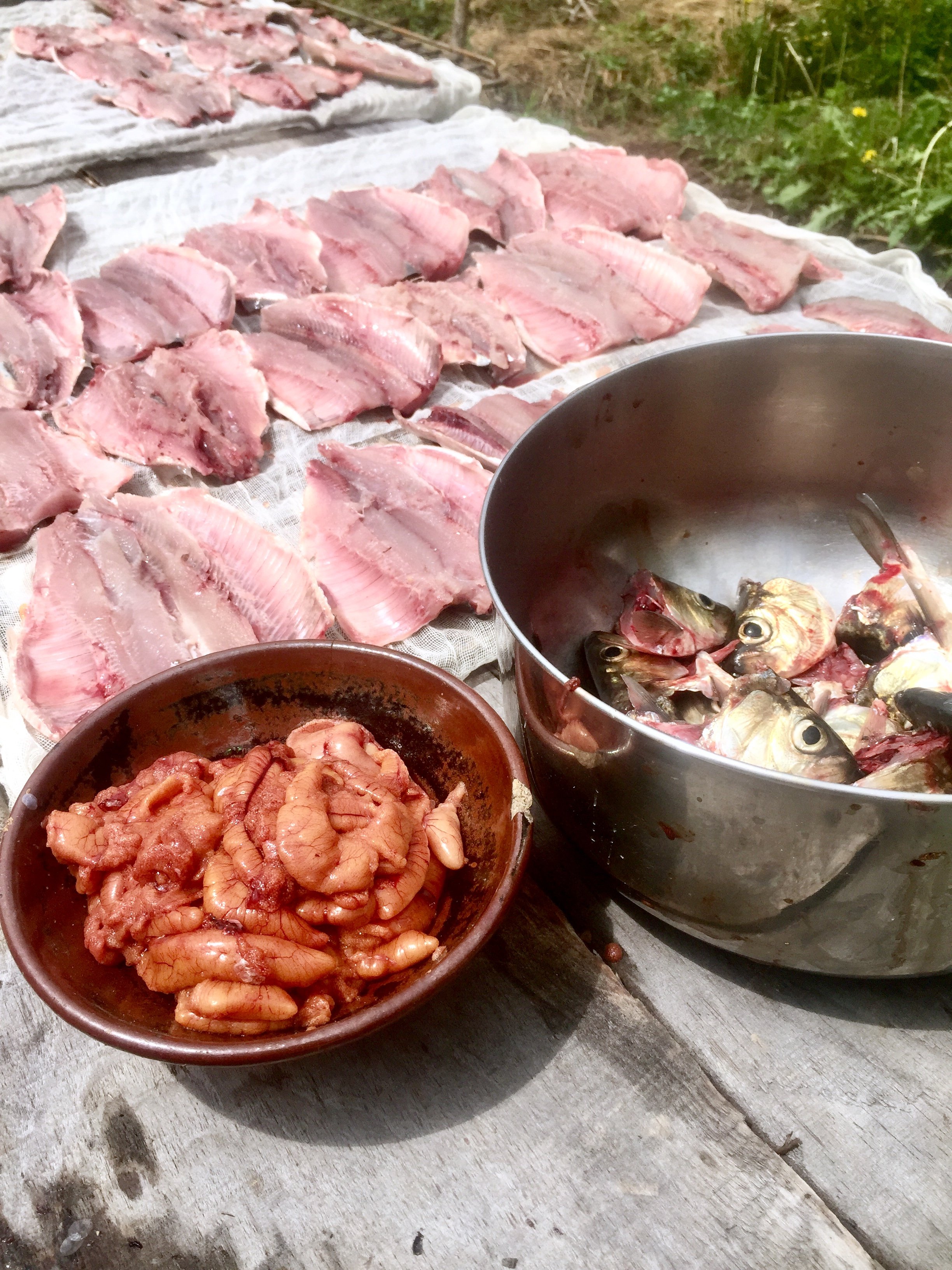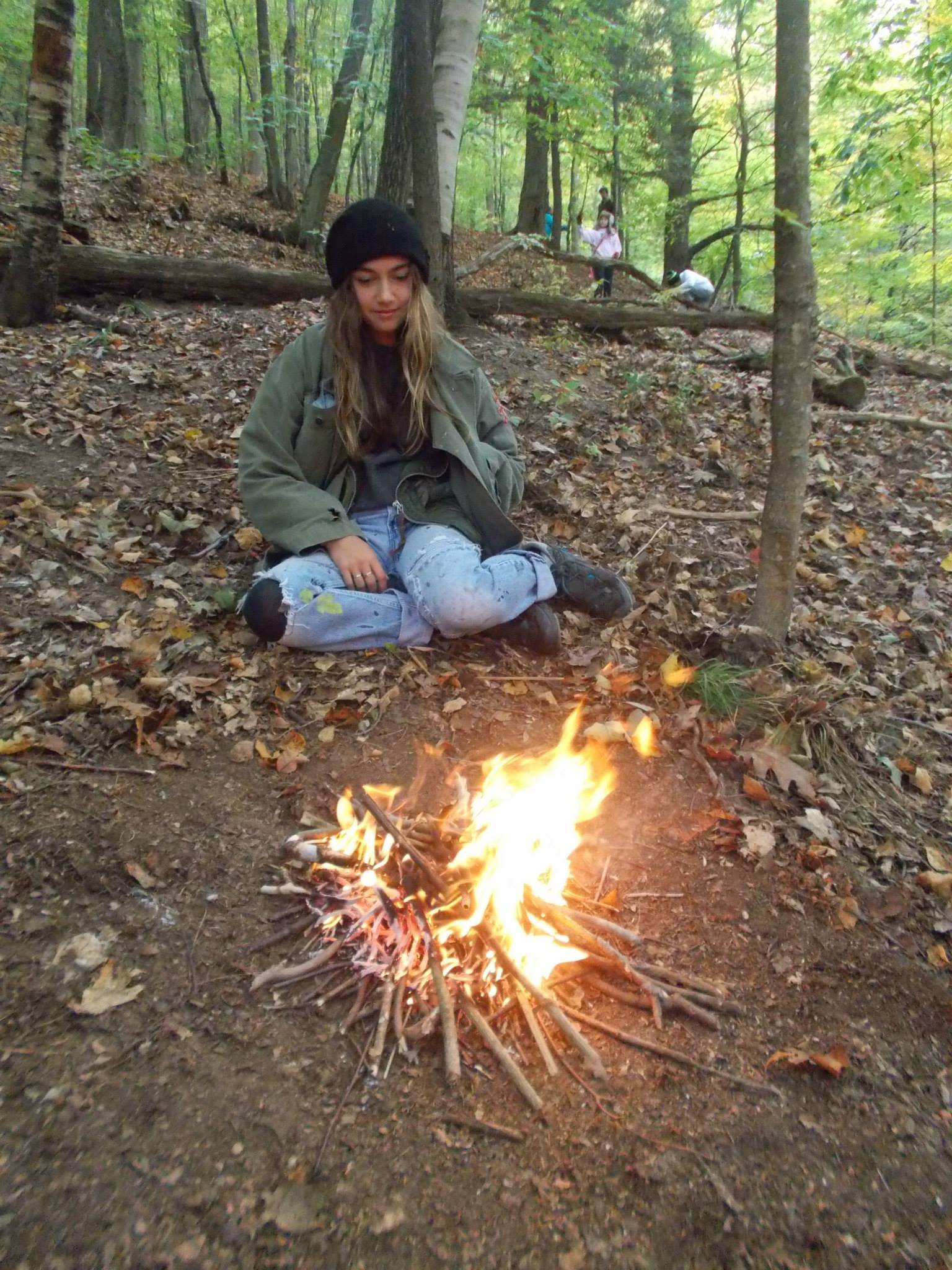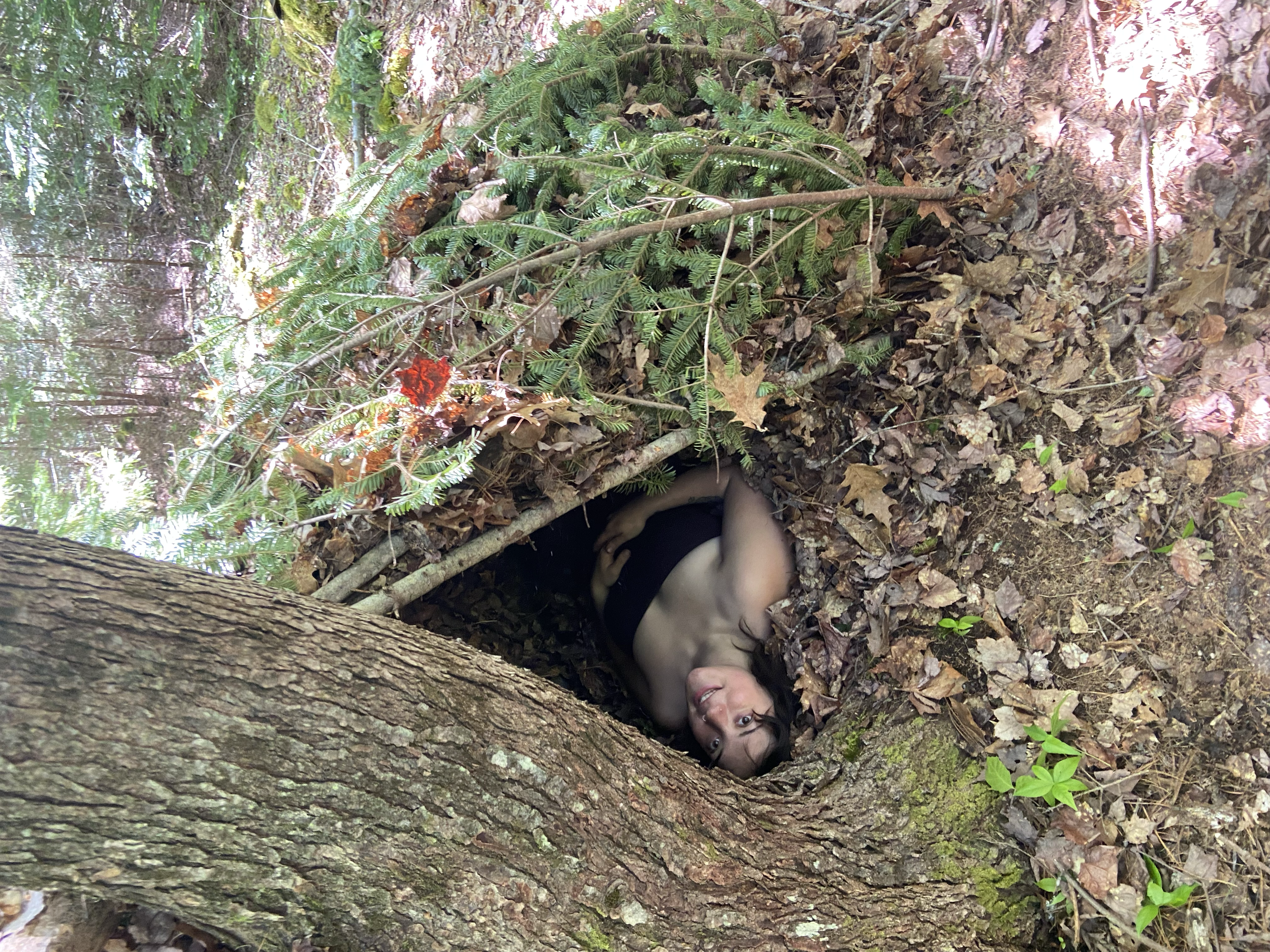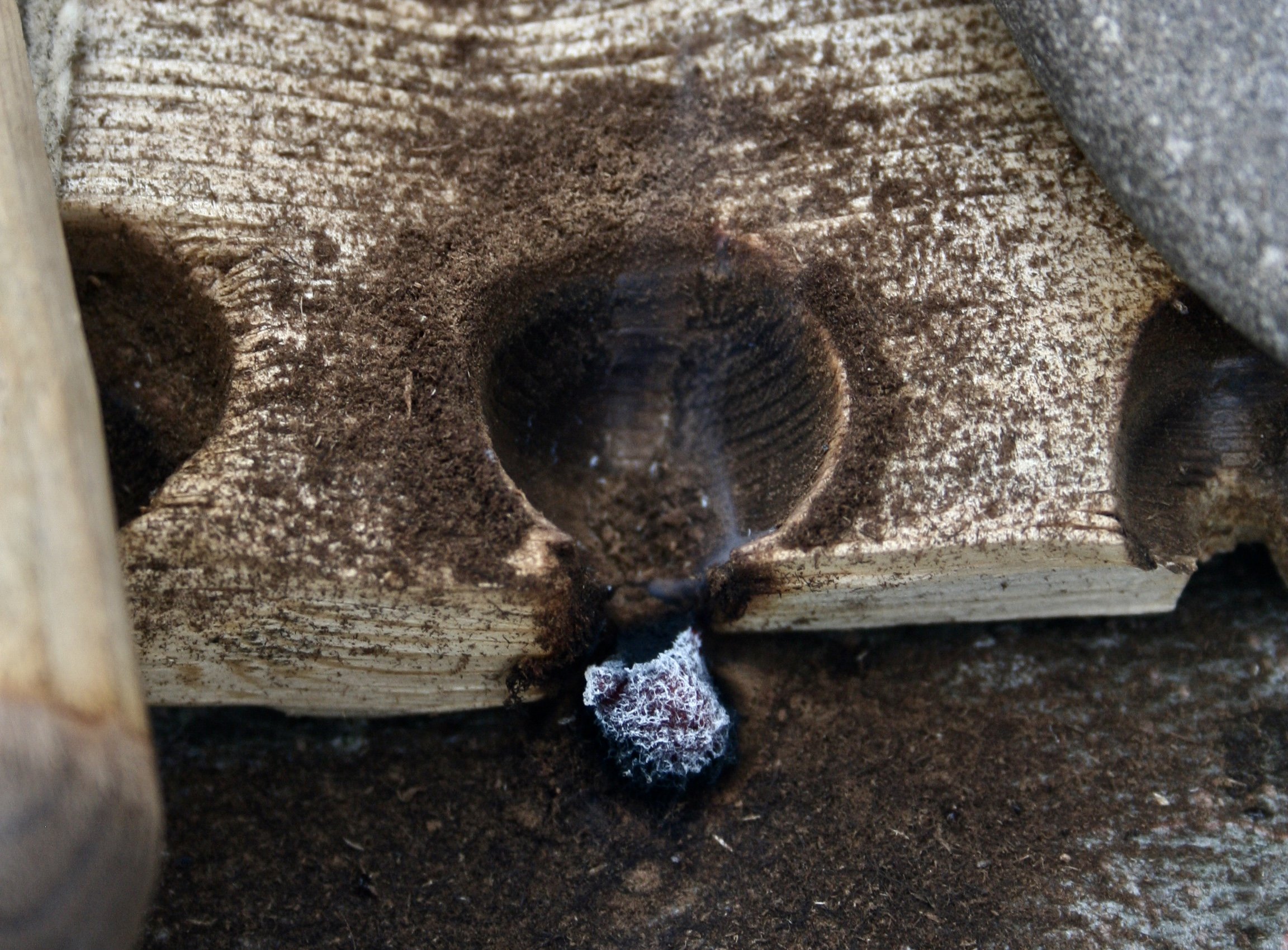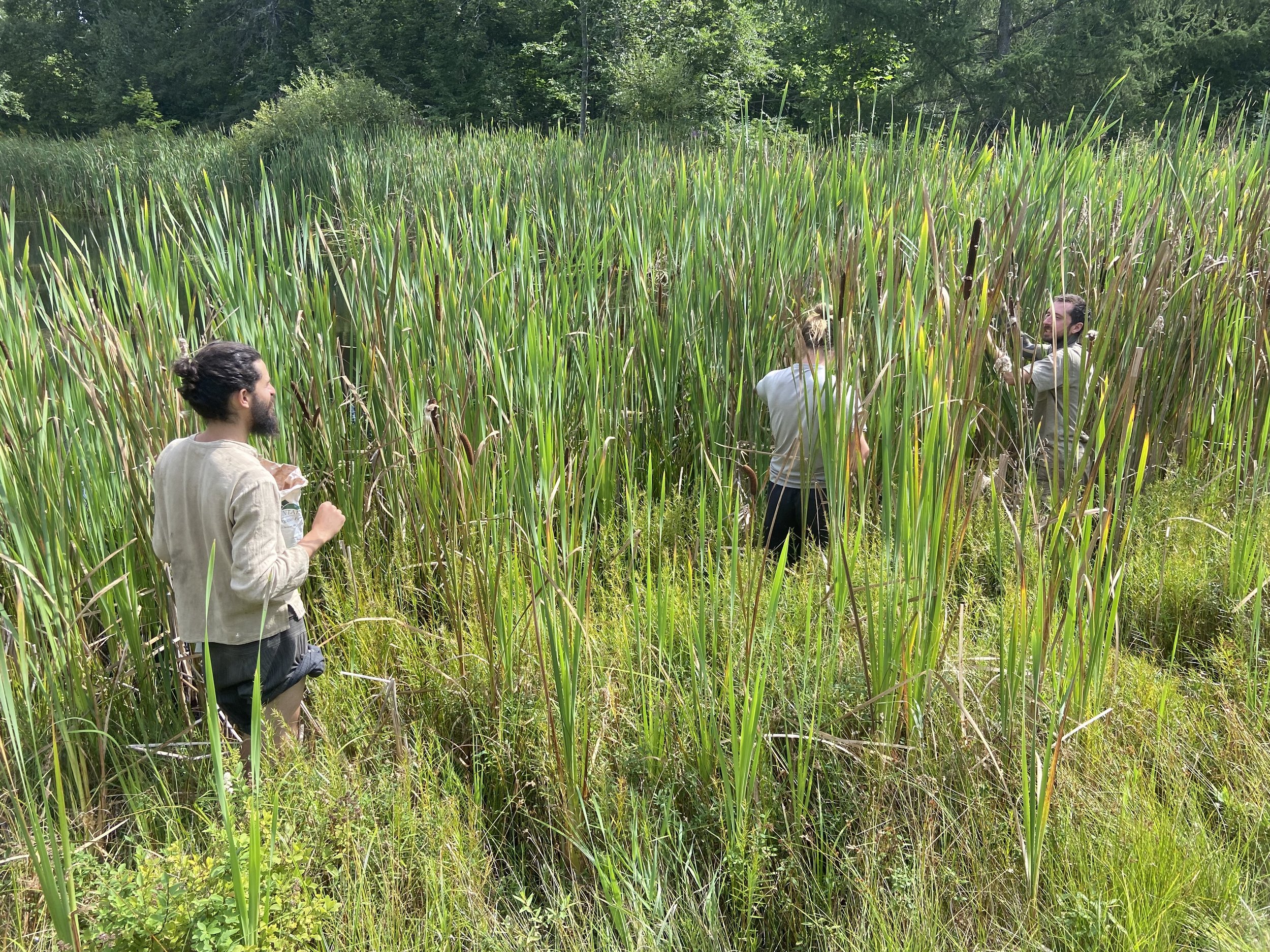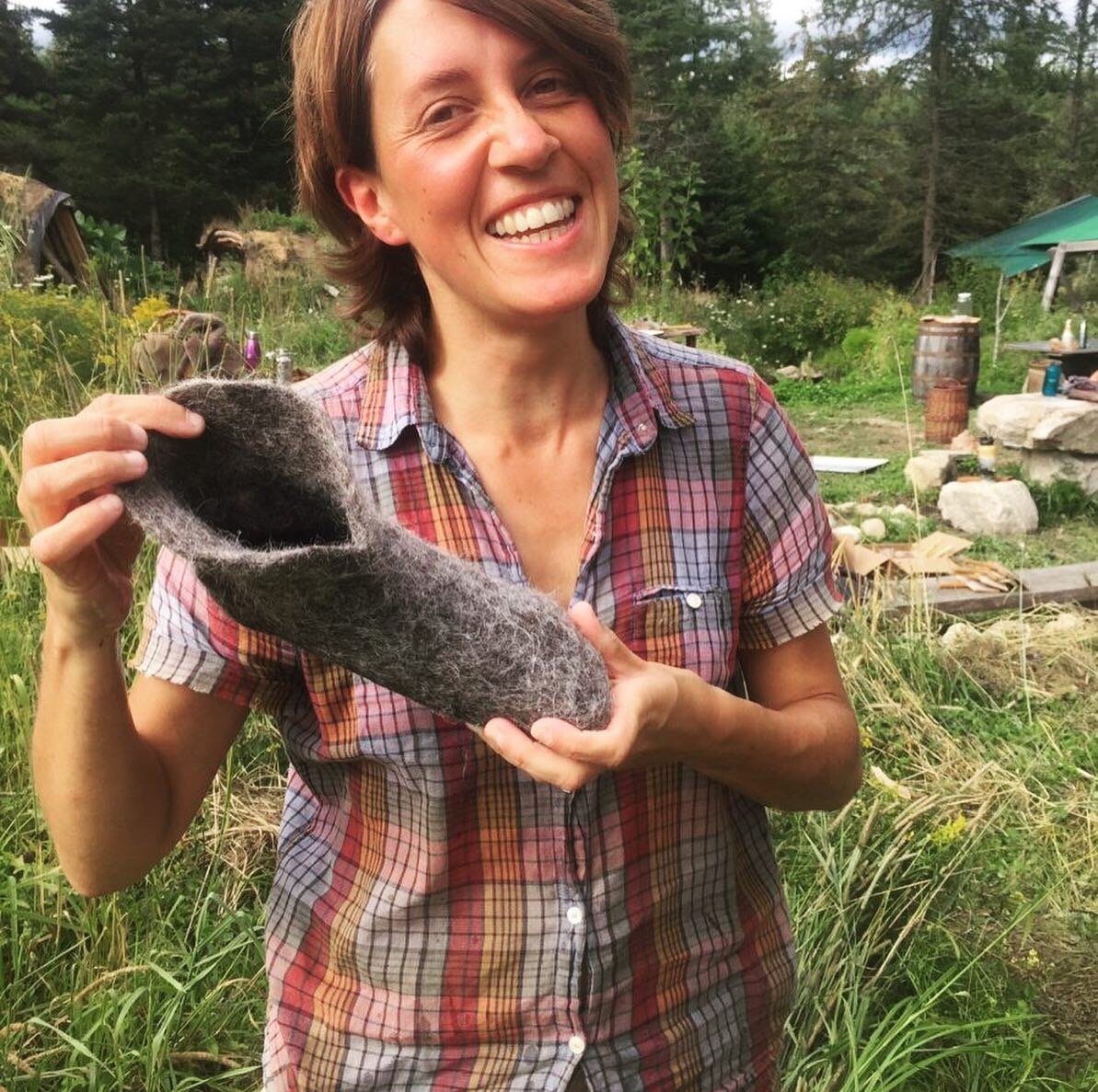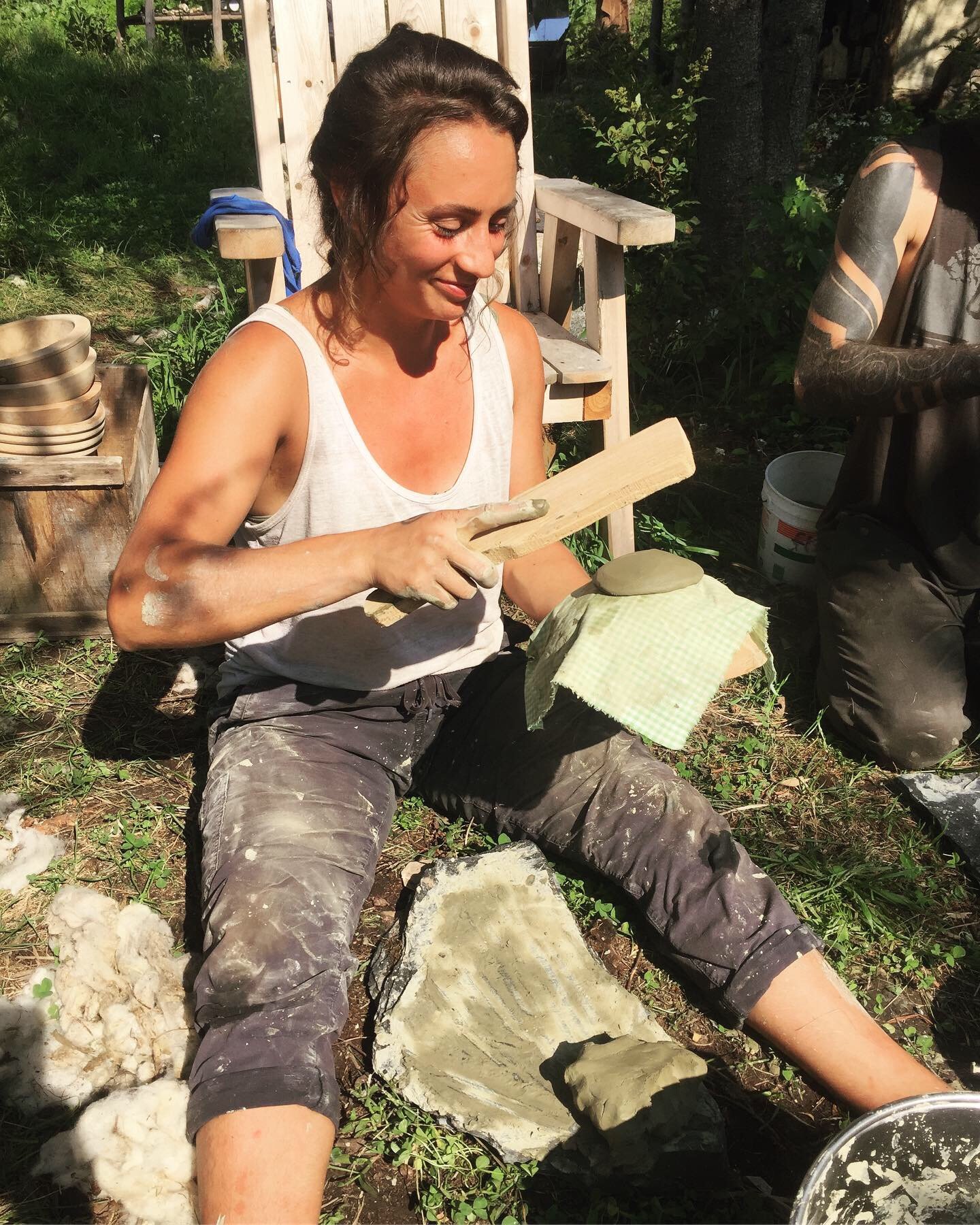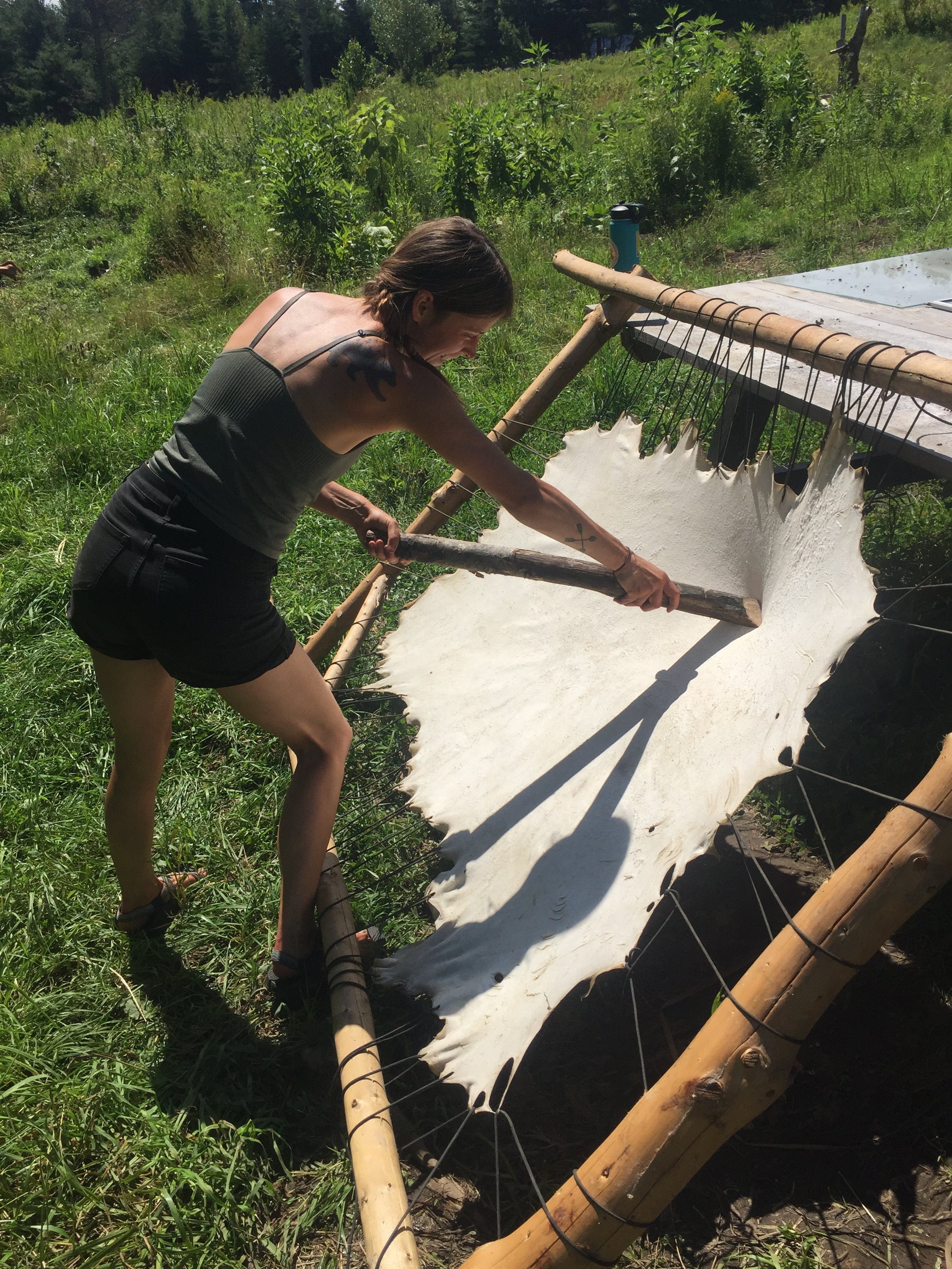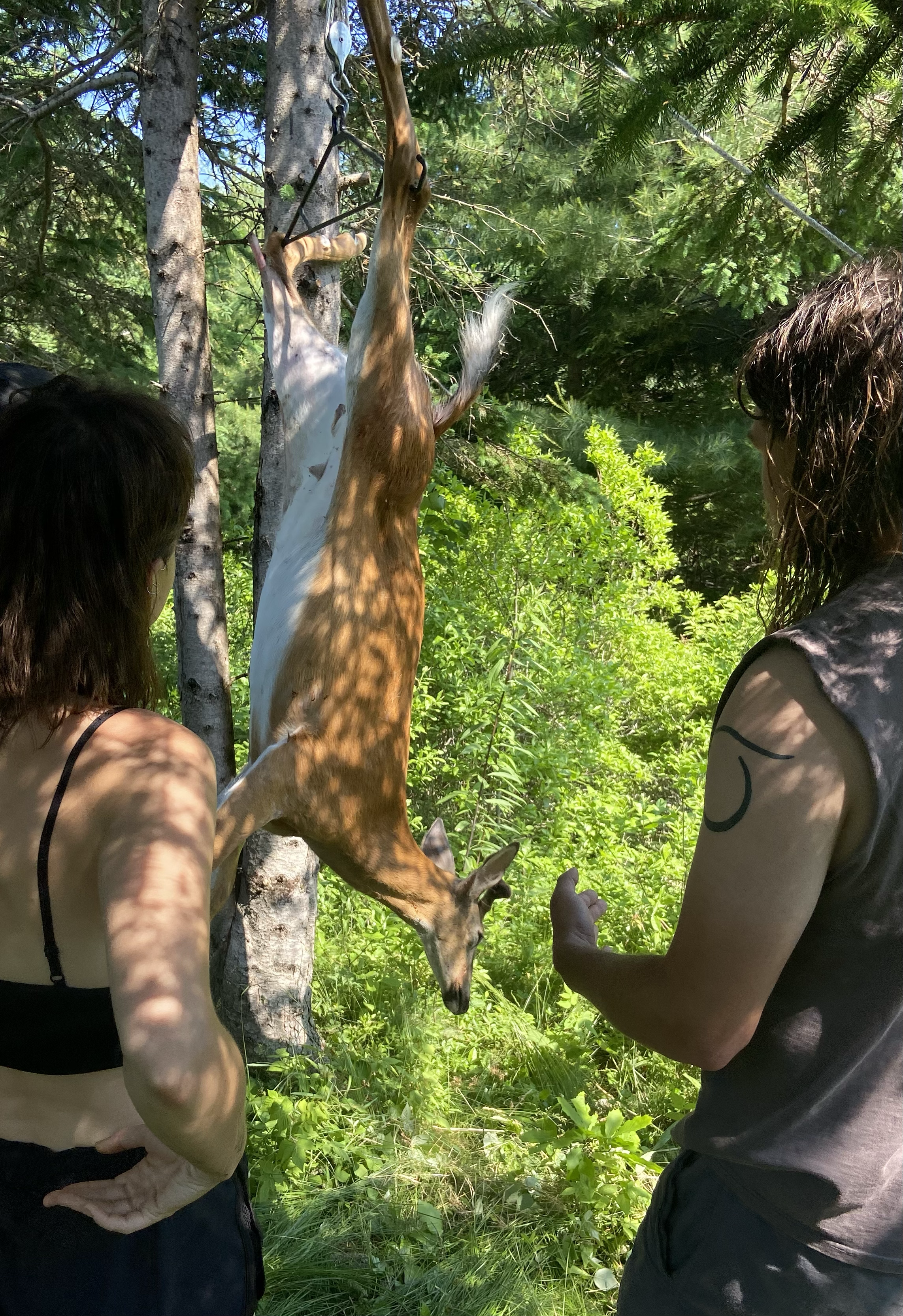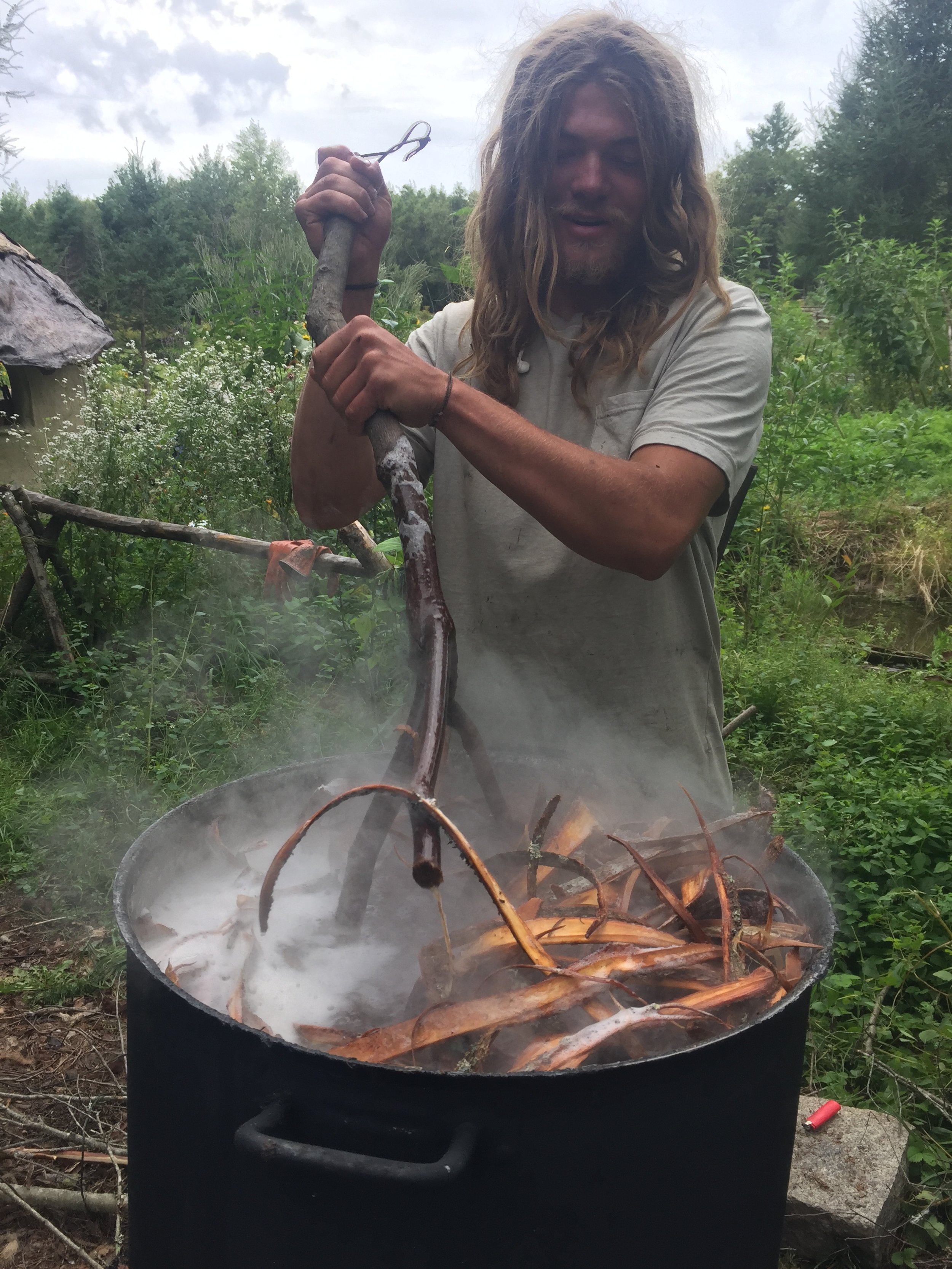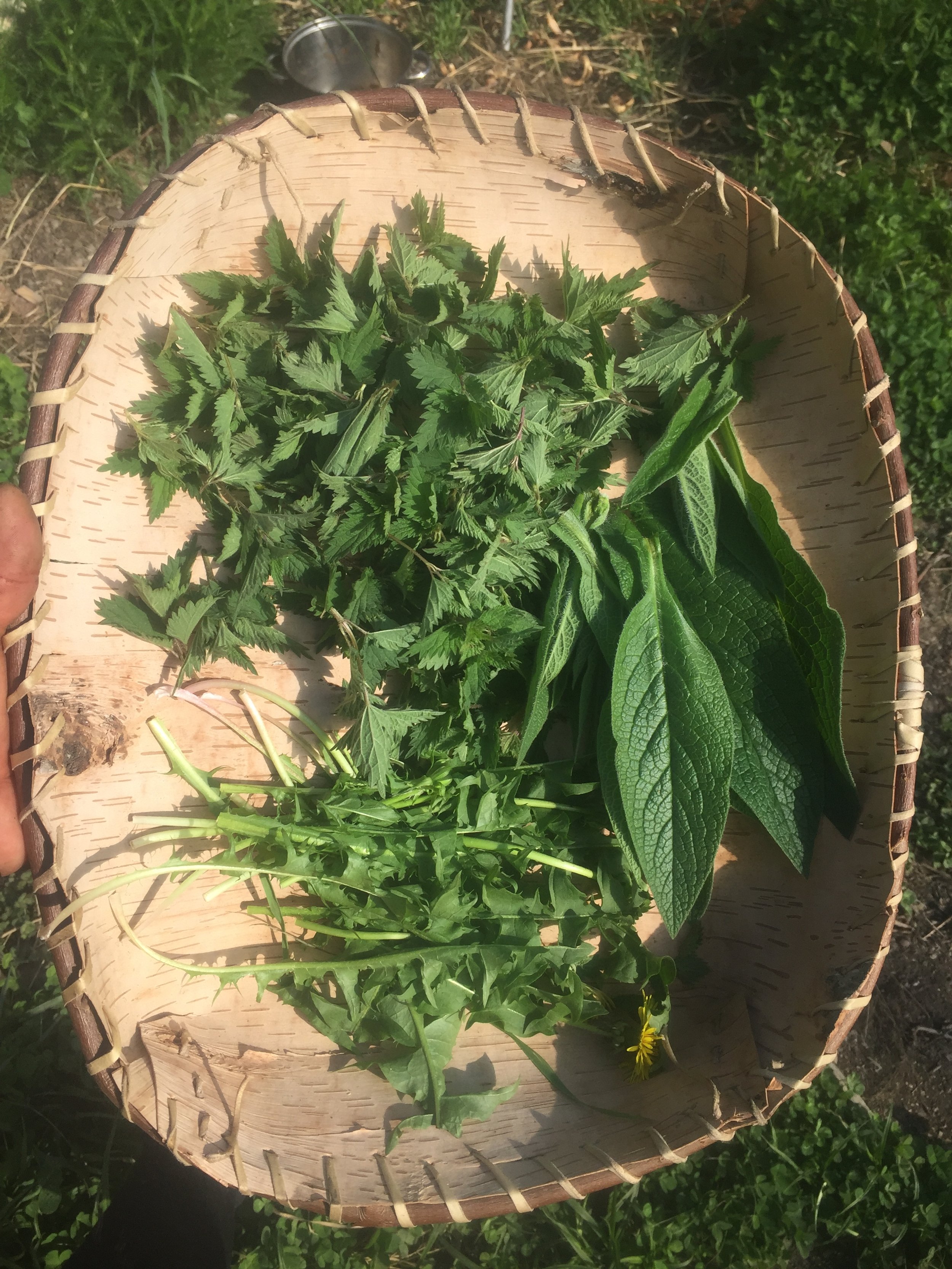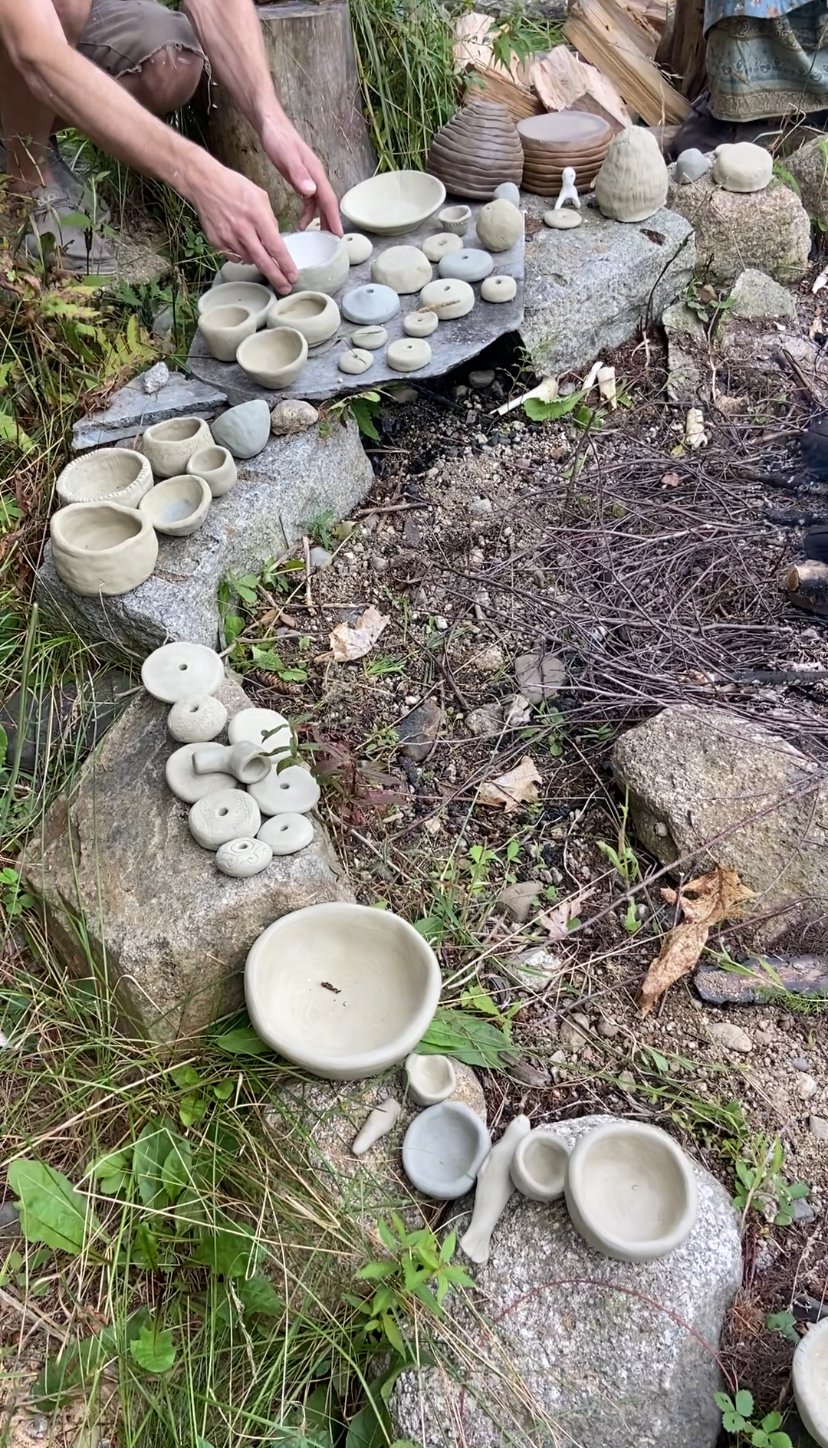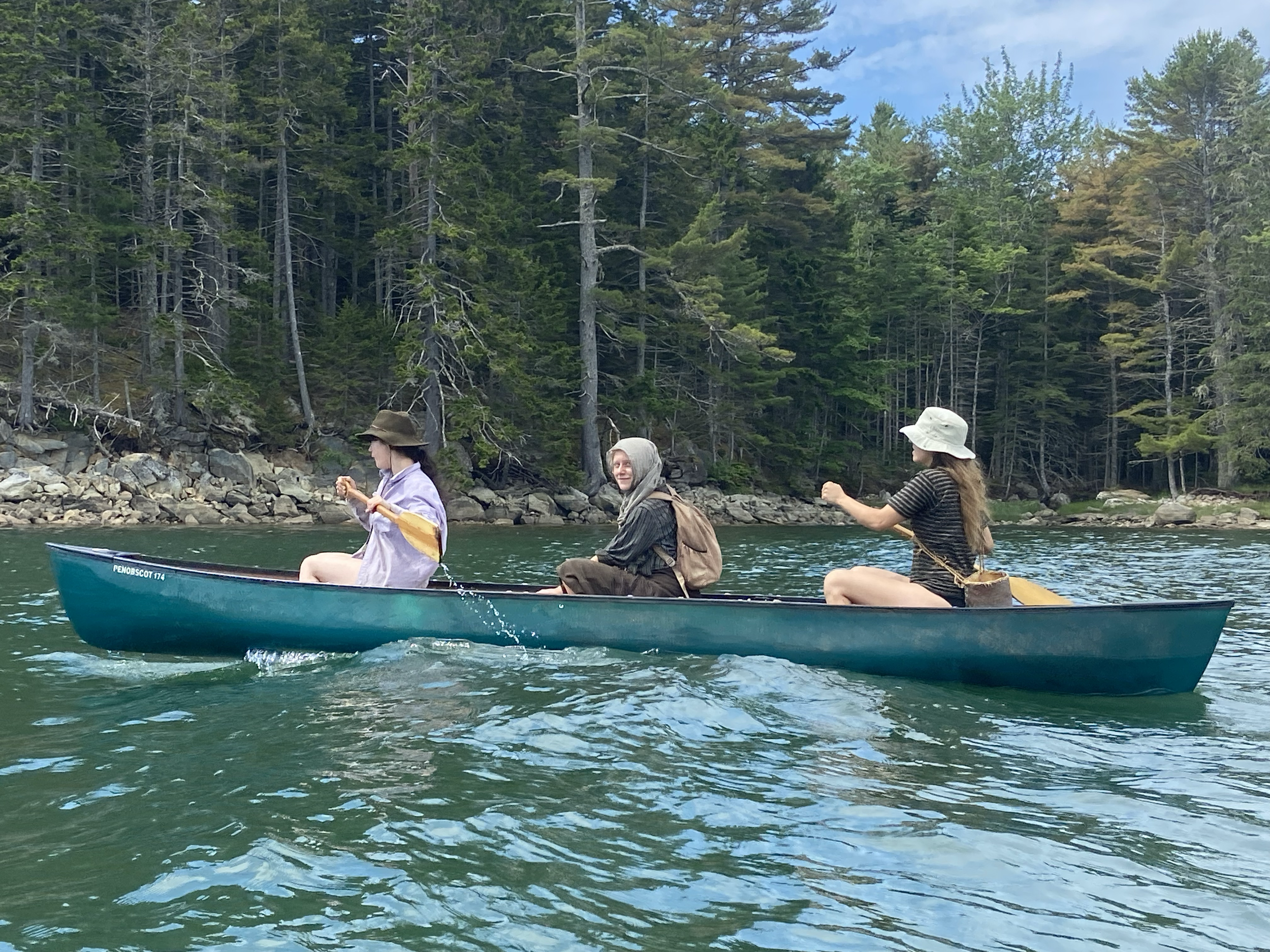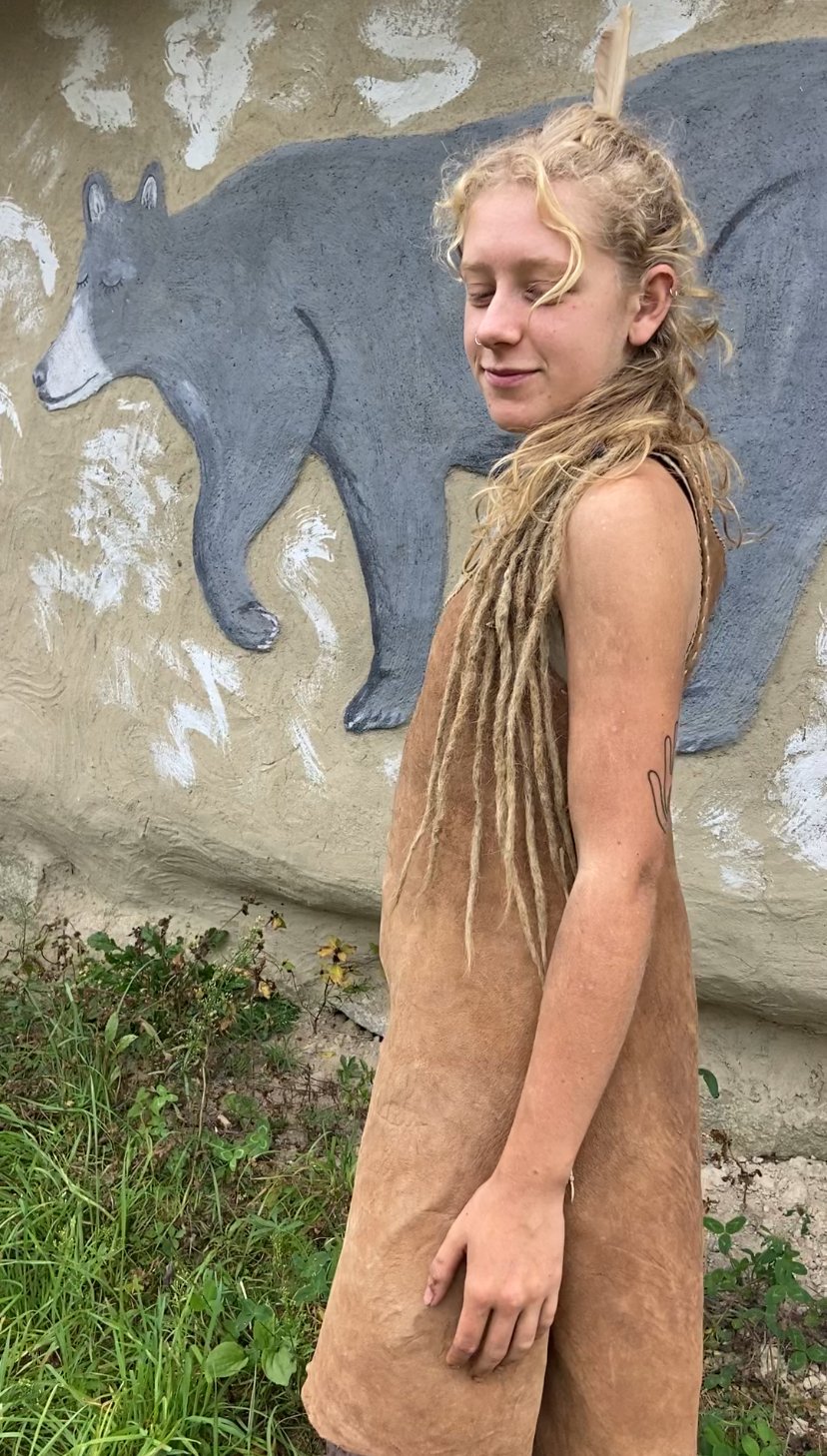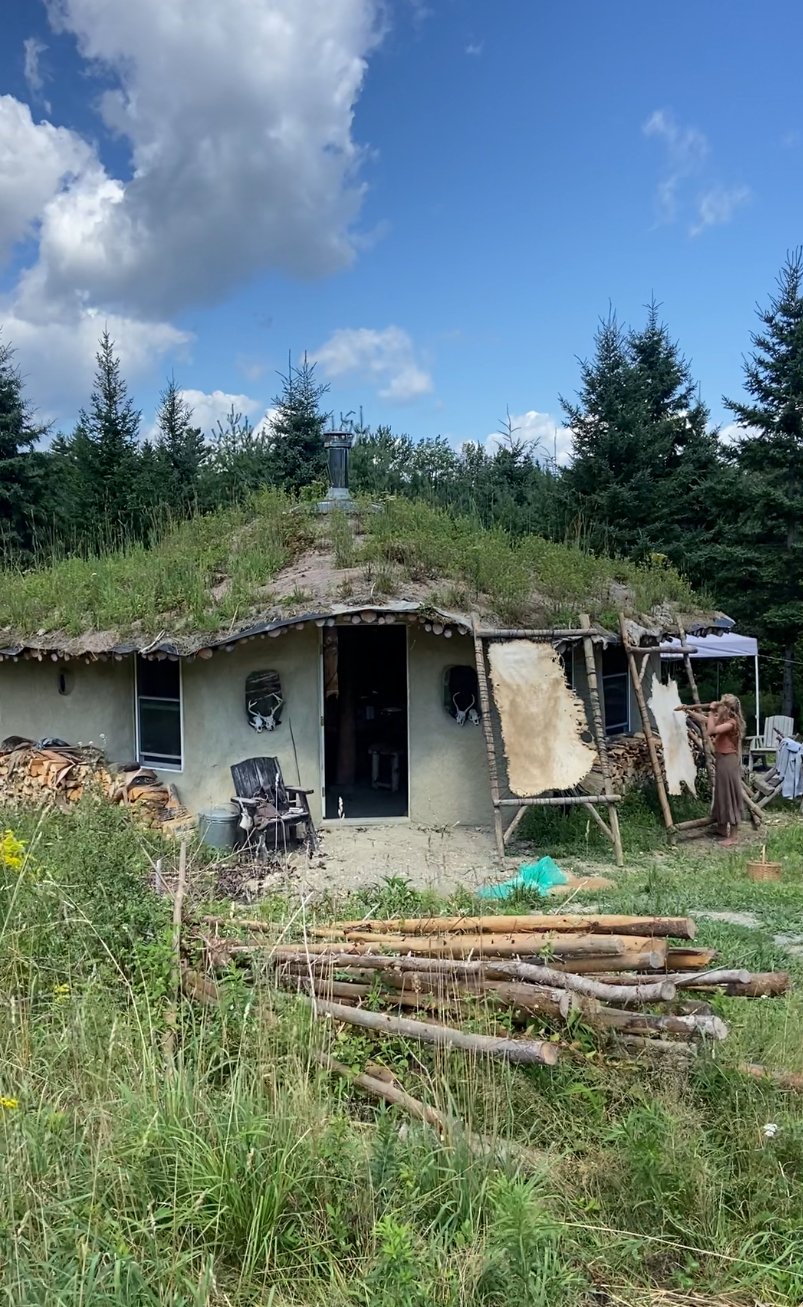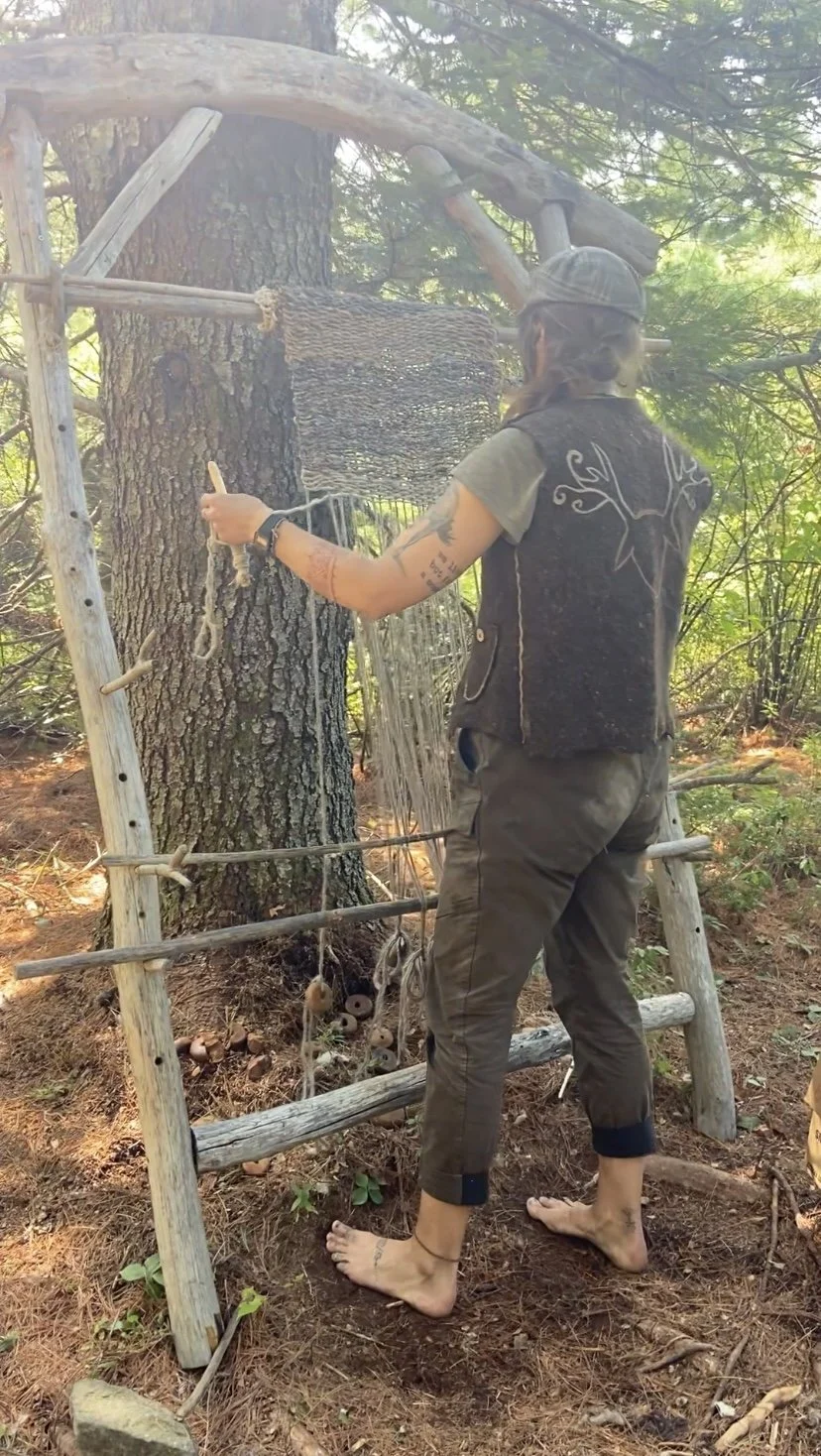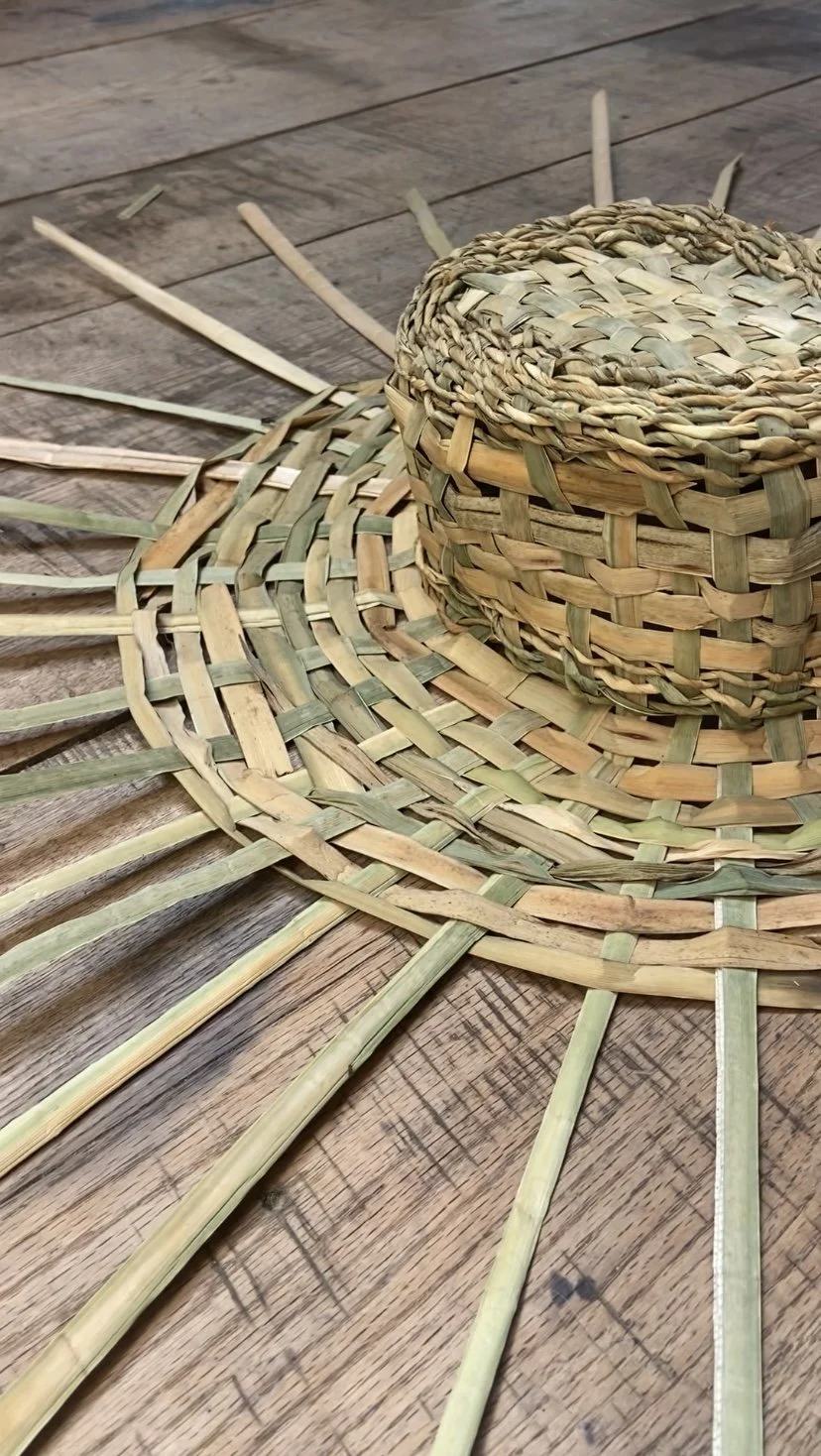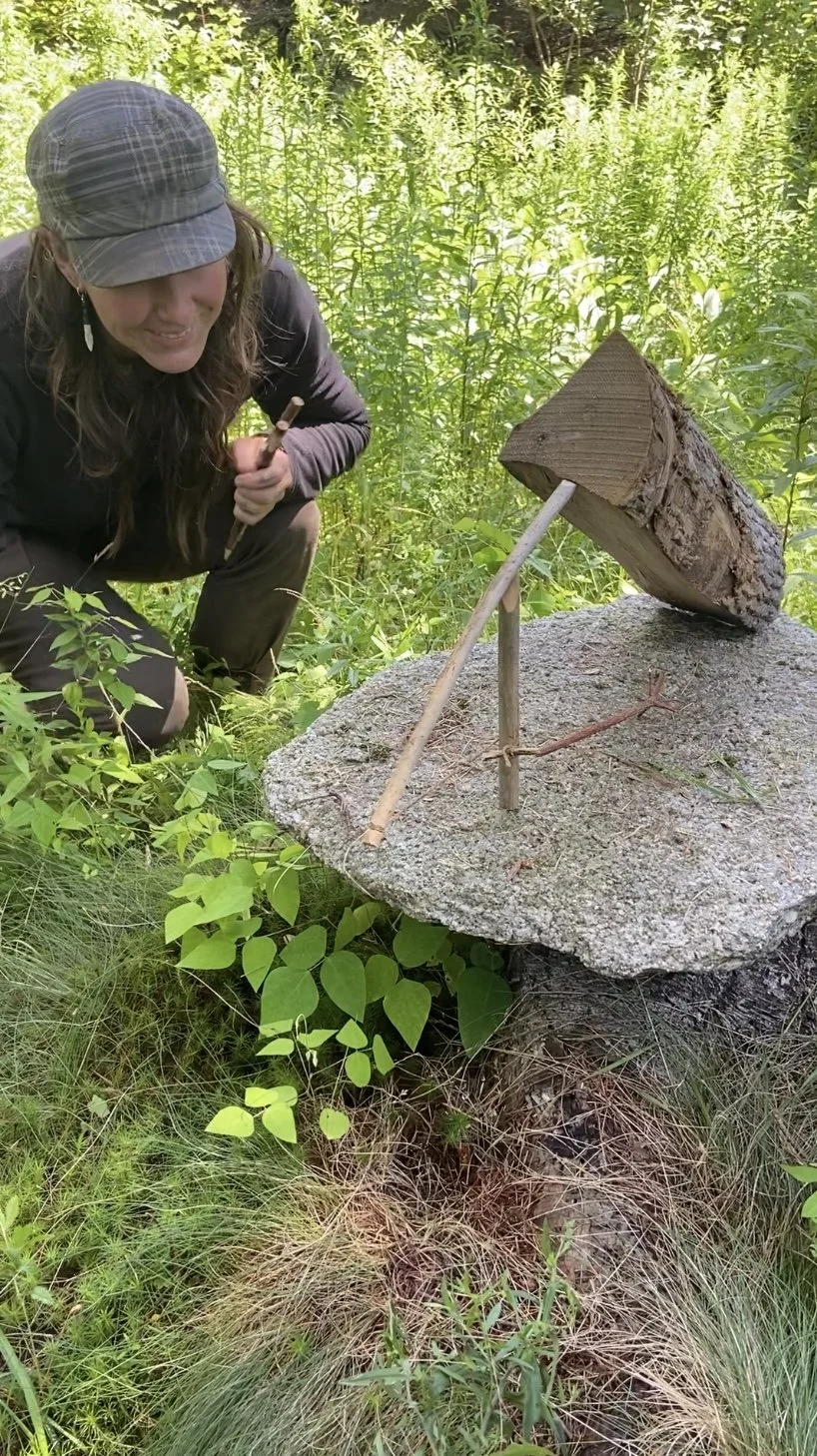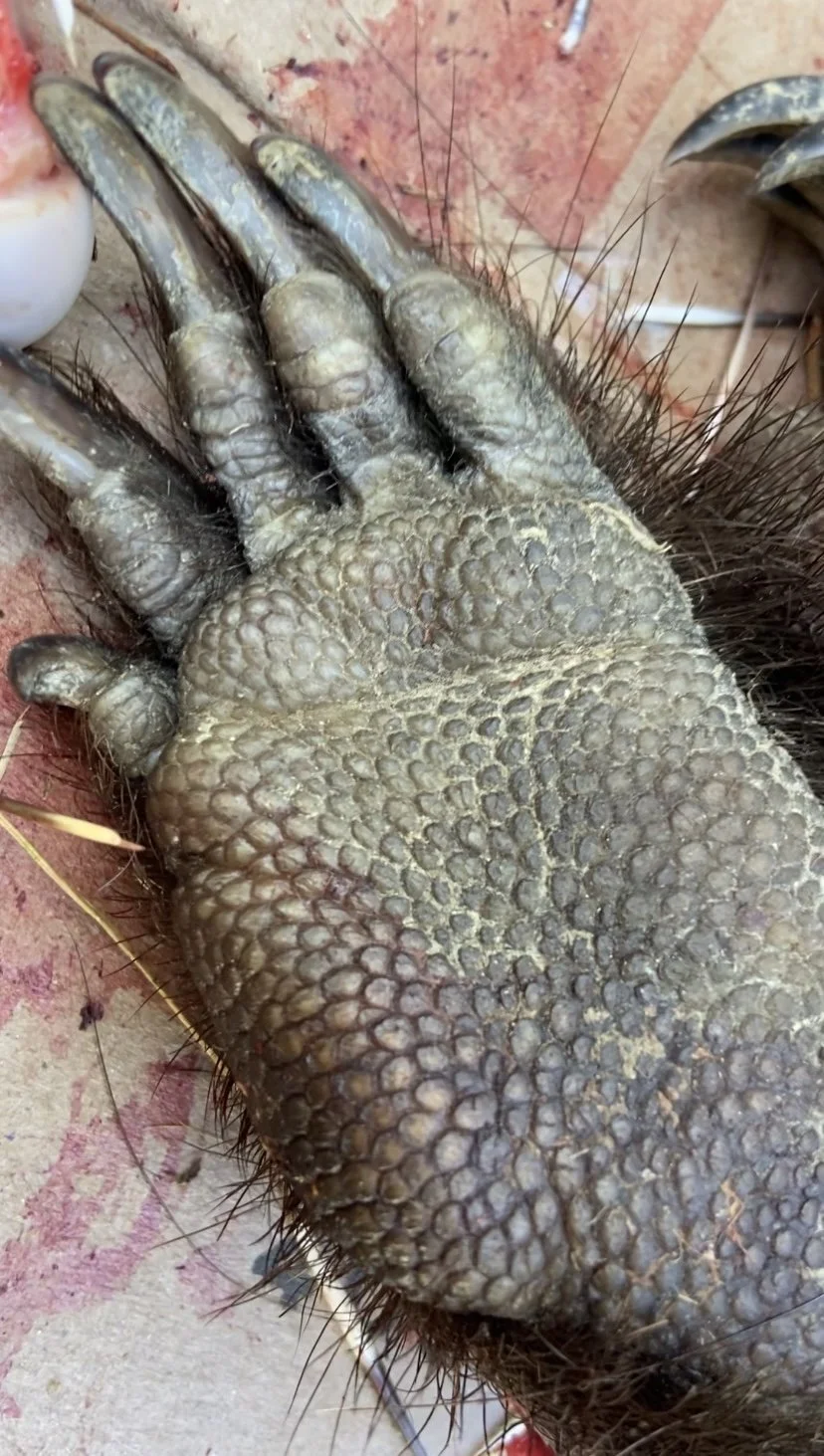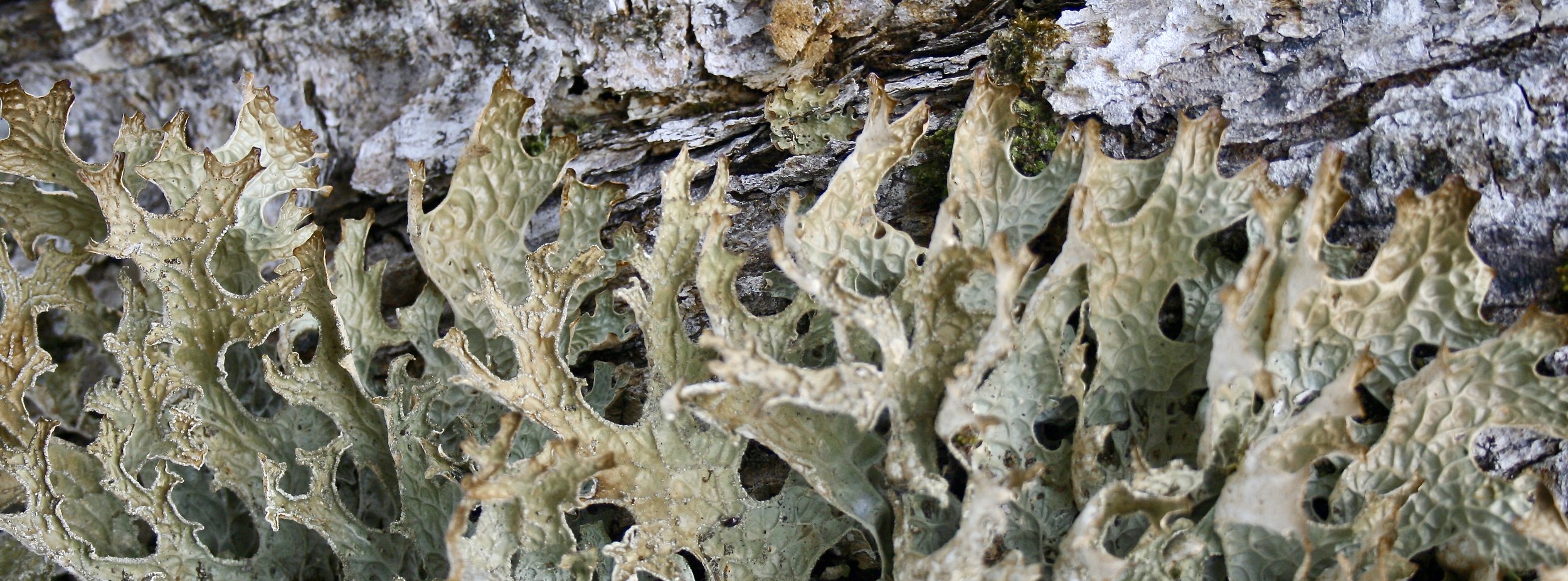
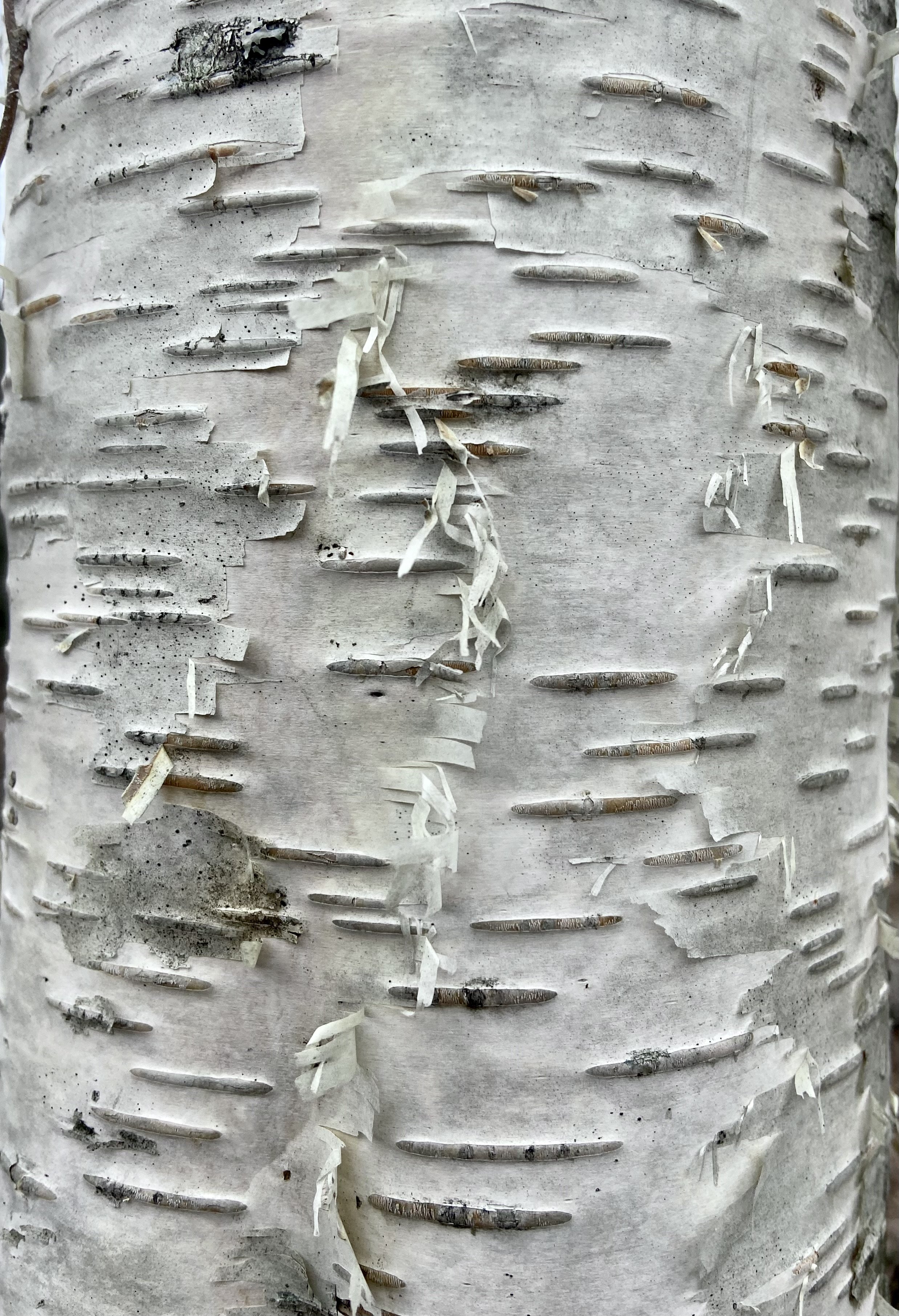
Immersion Program
This program weaves ancestral skills over and under threads of land stewardship, wild awareness, exploring our inner landscapes, and developing community to create an experience that nurtures an intimate relationship with the natural world. You will have dedicated mentorship from human and non human teachers, who will guide you through a vast amount of skills and support your journey deep into the layers of what the land has to teach you. The deeper you go the more alive the land becomes, and the more alive you become..
Apply for the 2026 program!
May 20th-Sept 10th
Ancestral skills
Practicing ancestral skill lifts the veil between humans and the natural world. Meeting your daily needs from the land, requires you to know the personality and gifts of all the tree, plant, animal, water kin. To truly know them, you must gather many layers of shared stories. In these stories we make mistakes, learn, feel guilty, make interconnections, find awe and wonder, get filthy, and develop competency. There is so much learning behind the big moments when we finally make impressive clothing from deerskins we tanned, or successfully birth a friction fire coal in the pouring rain. All these stories we live out speak to the transformative process of becoming part of the land.
Land Stewardship
As animals, humans are designed to participate in nature by meeting our needs through these skills. The land relies on us to do so. Each skill has a specific set of caretaking techniques & ethics that can make the land healthier and more diverse through our participation. By gaining an understanding of how the soil, trees, air, animals, winds, waters all interact and impact each other, we can know how our kin will feel the ripples of our choices. We can create habitat, disperse nutrients, thin for balance, and enhance the intelligent natural cycles and systems. This knowledge changes how you harvest the bark for baskets, what you do with the hide scraps from hide tanning, and where you plant the oak trees for future generations. By becoming skillful in these techniques and ethics, your wake becomes one of health and diversity.
Wild Awareness
Our minds are a powerful tool for seeing deeply into the interconnections and unseen realms of the natural world, helping us to see that everything is a track; revealing as much information as we we are capable of seeing and asking. The more you can see, the longer and more detailed the story gets. This awareness is powerful, but to deeply align with the earth, we must go beyond the realm of our rational minds; to retrain our senses, to start feeling the forest instead of only seeing it. When we do this, the animals soften into your presence as you soften into theirs. You may even “know” where the deer are on the land, or a squirrel might offer themselves to you as your next meal. Expanding our awareness allows us to become aligned and in awe of the mystery that is always swirling around us.
Inner Landscape
When we untangle the blockages that prevent us knowing our wholeness, we discover how to let the land speak through us. These blockages we carry, are a gateway into our greatest gifts that are already within us; because healing is becoming whole, its not changing who you are. What we heal becomes our medicine for the world, the gifts to give back to our ecosystem. No one else carries the exact constellations of elements & qualities that you do. This uniqueness, is what makes you a potent medicine creature for the plants, animals, rivers. The trees looks to us for our own gifts, like we lovingly look to them. To find our innate wholeness requires us to journey into our inner landscapes with the guidance of the natural world, and to return with the radiant wisdom of who we are. When we have this clarity in our bodies, we can hear exactly what the earth needs and follow with grounded actions that make us powerful land stewards and regenerators of culture.
Community
The land teaches us that community is our greatest survival skill. A healthy ecosystem is one where all members are in balance with the natural cycles, giving and receiving through their innate ways of being. We need each other, in our similarities and differences; to create a more complex wholeness that is exponentially more powerful than an individual. By gathering the skills required to navigate the playful and messy terrain that community inherently is, you will find deep belonging in the ecosystem of wild humans and non humans that you will live within. Its a connection that will live within your heart for the rest of your life.

List of Physical Skills covered:
Land stewardship techniques; including permaculture, nurtureculture, agroforestry and ancient indigenous wild tending technologies from across the world
Wild Awareness Skills
Shelter Building; design and physics of short and long term shelters
Buckskin, bark tanning, fur-on pelts, fishskin leather, organ tanning and other ancient tanning techniques
Community Skills
Making Clothing, Sewing techniques and pattern drafting
Traditional felting techniques and felted clothing
Water procurement, purification, storage and utilization
Spinning tools & weaving on handmade looms with goat and wild fibers
Bark containers
Earthen Pottery
Knife and tool skills, safety and maintenance
Basketry; made of wild gathered materials like roots, cedar bark and cattails
Friction fire Methods; bow drill, hand drill, pump drill and others.
Fire making/tending skills and coal carrying
Primitive Cooking with rocks, baskets, clay and other natural materials.
Wild edibles; harvesting, processing and cooking
Medicinal Plants
Rawhide crafts and braiding techniques
Animal processing of roadkill, deer, goat, ducks, fish, porcupine and whoever else shows up for us
Bone tool making
Camping/tarp skills and knot tying
Coal Burning spoons & bowls.
Natural glues and “epoxy” recipes
Mat weaving with cattail or grasses
Camouflage, tactical awareness, concealment, and stealth skills
Tracking and animal behavior
Naturalist Studies
Bird Language
Making and using Rocket Stoves
Primitive Trapping
list of internal skills covered:
Community living
Conflict resolution; ancient and modern techniques
Play as a tool
Listening to the land
Working with the elements
Emotions as messengers
Gratitude
Finding your voice through communication skills
Decolonization
Internal Family Systems & attachment relationships
Giving and receiving feedback to become our brightest selves
Self care practices as central to our thriving
Reconnecting to body; developing intuition, body wisdom and reading the body

Living Setup:
Sleeping: For the first part of the program you will be living in the sleeping setup you bring with you. You can build a shelter at your camp during the shelter building session if you choose or sleep in your tent during the whole program if you would rather focus your energy on other skills. There is also earth lodge people can take turns sleeping in.
Kitchen Setup: You will cook over the fire pit or with rocket stoves. All the kitchenware is provided and you will work towards making your own bowls and utensils to use throughout the program. There is drinking water and sink setup gravity fed by spring water.
Bathroom/Shower Setup: There is a simple composting toilet and tick checking station. For bathing, you can choose between two different streams. There is even a waterfall five minutes upstream if you want a high-powered shower on a hot summer day and the ocean is less than a mile away for a midday dip.
Food: We provide the majority of food. We have some gardens of cultivate foods on the land, get a weekly organic CSA share from a local farm and buy bulk organic staples from the coop along with other food items. You will be scavenging road kill, fishing, hunting small game, or killing organically raised goats for meat. There are wild foods throughout the land as well. Please plan financially for extra food as you will likely want to buy things like personal snacks, extra meat, dairy, etc. All participants take turns cooking meals for the group in cooking teams of two during class days.

Weekly Rhythm:
The following is to give you an idea of the different components and general rhythm of what your day to day will look like. It is lose framework that we use to make sure your time living here is a good balance between intensive learning, play, deeply sinking into landscape and free time.
Every week, we progress through the foundation skills following the sacred order– awareness, shelter, water, fire, food. We move through each one, deeper and deeper, moving from surviving to thriving; cultivating a powerful reverence and competence for what it means to live with the earth. At the end, there is a period of independent study where we help you go deeper into the skills that you are most excited about.
Your Sit Spot: This is your sacred learning place that we encourage you to visit almost every day through out your 4 month experience. Here you will practice different awareness techniques, meditations, giving offerings, care-take, and sitting quietly observing what is happening around you. This place becomes a portal for you to learn how to be in relationship with the land on many levels.
Morning&Afternoon instruction blocks: We have workshops every morning 4-5 days a week, that sometimes extends into the afternoon. These are a mix of hands on skills and educational lectures.
Land Tending: 1-2 hours a week, we will spending some time focusing on some of the core land tending techniques
Inner landscape skills: Once or twice a week we explore skills of our inner landscapes. These sessions are developed through grounded frameworks and activities informed by the landscape you will be living with. See internal skills listed above for the themes we will be exploring.
Rest Day: Rest days are for taking care of personal needs, timeless wandering, canoeing out to the islands to catch fish and explore or working on projects that you’re excited about.
Sample Day
7am:Wake up & spend half hour doing a sit spot.
8am: Communal Breakfast
9:00am–12:00pm: Tracking in leaf litter.
12:00pm-3pm Communal Lunch, rest time or a short canoe out to catch fish for dinner.
3pm-5pm: Hanging out together, weaving baskets or going for a wander up to the waterfall.
6pm: Communal Dinner.
Cost & Financial Aid:
The cost of the Program is a sliding scale of $4,500-$7,500. We will not turn folks away if they cannot afford within the sliding scale.
We want this program to be available to anyone who feels called to be part of this experience. We ask you honestly evaluate whether or not you can afford it, and to stretch financially to do so (keeping in mind we need financial compensation to run the best version of this program). There are scholarships available to those who need it. If you want to donate to the scholarship program to help someone else attend, please contact us!
Want to Sign up for the Program?
If you have questions regarding the program, please email us. Once you’re sure you want to apply, fill out the application below. Please be thorough so we get a better glimpse of who you are, what you care about and why you want to do this program. Once you send your application and pay the application fee, we will send an email letting you know if you have been accepted or not. We will then set up a phone call so we can share about how to prepare for the program and answer any remaining questions you may have.
Application (PDF format)
Application (word document)
*if you are having a hard time with the application format, just copy and paste it into another word document or email it directly to us!
What students say about the program:
“My time at way of the Earth was a time of deep rooted connection; to the land, to others and to our more than human kin. We were enveloped in what it is to be a living, breathing creature on this earth. I met life and death in many forms and learnt their languages. The teachings came in many shapes. The creative and practical skills I learnt drew me more deeply into the energetic teachings of the land. Ceremony was threaded throughout the immersion giving depth to the skills I was practicing. The land itself shared many a tale and teaching. By stripping our living back I found just how much joy can be felt walking gently upon this earth. I have so much gratitude for Hannah and Colby; for the land they have tended and for the lessons they have shared which will be within me as I continue to follow this way of the Earth.” - India
“My time at the Way of the Earth Immersion program deepened my relationship with the land and reshaped my understanding of how to walk through the world. The immersion guided me to move in harmony with the cycles of life and death, fostering a respect for the natural rhythms around us. I learned not only essential skills like hide tanning, plant ID, harvesting wild edibles, firecraft, shelter, and leather sewing, but also how to offer true support and advocacy for the landscapes we call home. Living directly on the land brought a rare, simple joy—from feeling the earth under my feet to listening to the birdsong at dawn. Hannah and Colby hold an incredible space, creating an experience that goes far beyond skill-building, leading us toward a more mindful and connected way of being.” - Talise
“Participating in the Way of the Earth Immersion program was a life changing experience. Everything we learned followed the sacred order of survival and centered the importance of caring for the land that gives to us. The amount of skills I learned in four months is incredible, from basket making, hide tanning, and shelter building, to friction fire, pottery, tracking and so much more. The best part for me was getting to live on the land in such a loving and close way- running barefoot, bathing in the river, cooking over a fire, sleeping under stars, and waking to the dawn chorus of hermit thrush and ovenbirds. Hannah and Colby are wonderful, supportive teachers and I recommend this program to anyone looking to move deeper into what it means to be human on this earth.” - Miki
“Being part of the school is one of the most transformative and positively impactful experiences in my life. I think for the first time in my life, I got to live and breathe a lifestyle that actually aligned with some of my inner most values of wanting to live in integrity and live close to the Earth; slowing down and learning what it is to have a direct relationship with everything that surrounds me like my clothes, my tools, my home, the land. To create all those things in a way that positively affects the environment and creates this caretaking embodiment is absolutely life-changing. I feel like it answers something so deep within me and such a wound and I've been carrying in this lifetime of feeling so much love and reverence for the Earth and yet realizing honestly how modern society has this momentum that's pretty out of balance when it comes to living with the Earth. For the first time in my life I witnessed folks that are not compromising that value of living in tune with the Earth and putting in the devotion to embody that and have it be a full on lifestyle versus just a hobby. Hannah and Colby are the most incredible teachers who really walk to talk and embody their values. That is so rare and I am so so grateful to witness that and learn from from both of them. Seeing that we can care for the Earth and have a positive impact as humans is probably one of the most fulfilling things, and I vow to take everything that I learned this summer and bring that into the life that I build in the land that I steward.” - Maddy
“The biggest takeaway from this immersion has been the caretaking principle aspect. its not something that I haven't been exposed to a lot back home despite attending a lot of ancestral skills and rewilding programs and having a lot of mentors. It's really felt like this missing for me as far as giving back and taking care of the land that providing you with with so much. It has been a really vital and potent learning from this immersion for me.” - Emma
“It has been nearly three months since I left the land, and I still feel it within me. I doubt I will ever not. This summer lingers in the way that my body has learned to authentically embrace this planetary community, through careful observation, intentional action, and truthful speech. Each day in the land was an accelerating heartbeat of boundless connection to the leafed, barked, winged, hooved, and scaled beings that became food, shelter, clothing, heat, story, song, spirit, and family. Relating with the sources of sustenance sowed understanding of the meaning of this human, animal, and earthen experience.” - Morgan
“My summer at Way of the Earth was deeply transformational. We spent our days with the intention to connect to the land, each other and ourselves. Each day offered so much new learning: the physical skills, the internal skills, and how they are interconnection. Feeling held by the land and my human kin, and getting to offer that love back — it was so healing. I left the program with a greater confidence, sense of connection, and a core commitment to the earth that will never be shaken.” - Grace
“It still feels hard to put into words just how impactful my time there was. It was easily 4 of the most meaningful months of my life. I am forever grateful to Hannah and Colby for cultivating such a beautiful program and offering to the world. To be witness to a couple that fully lives these practices every day AND wants to share what they know is truly inspirational. They weave so much care, mindfullness, and intention into every offering, every lesson unfolding so beautifully into the next, one step of the process setting you up for another! It was so meaningful to take part in such a depthful space, and simultaneously such a silly and playful space. One day we are crying together in ceremony, another day we are covered in mud sneaking through the woods. Silly awareness games holding as much sweetness in my memories as those deeply heart felt moments. I will forever cherish the deep bonds that formed by living in community. Sleeping in the moss together, sharing meals fireside, laughter, tears, song and witnessing eachother unfold into new versions of ourselves. I will always cherish the bonds formed between plant and animal kin and what it means to truly be a steward to the land. Falling asleep to frog song and barred owl calls, bathing in the streams, napping with the goats, eating from the land, the sweetness of living simply and more connected. I am truly honored i got to be a part of that, and can say with confidence that you definitely won't regret going!” - Hannie
